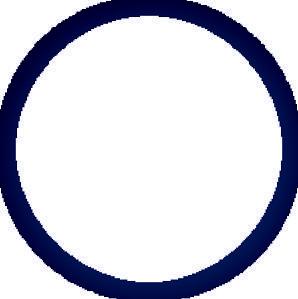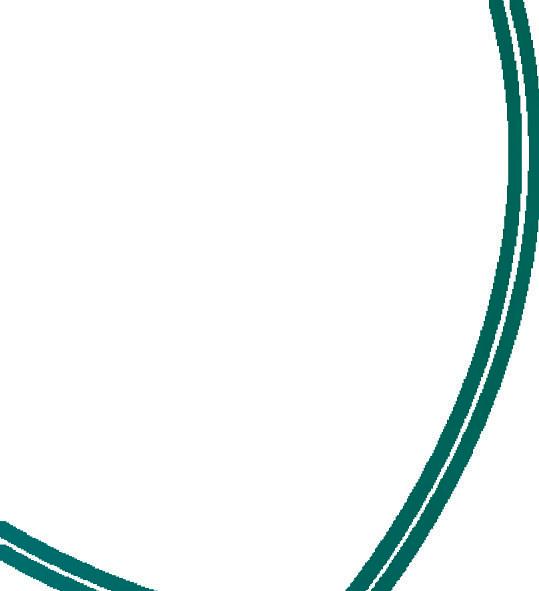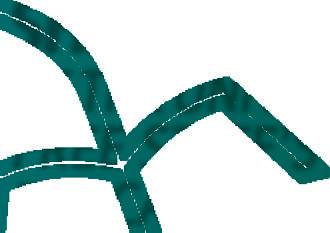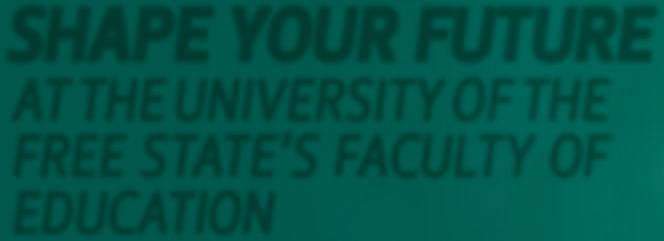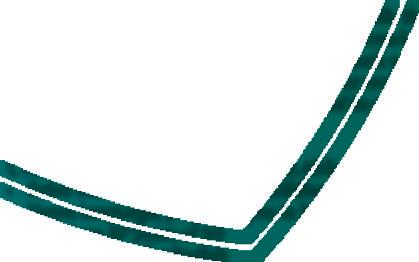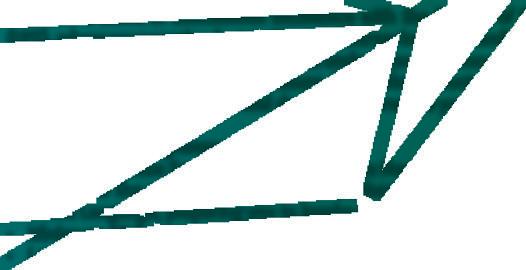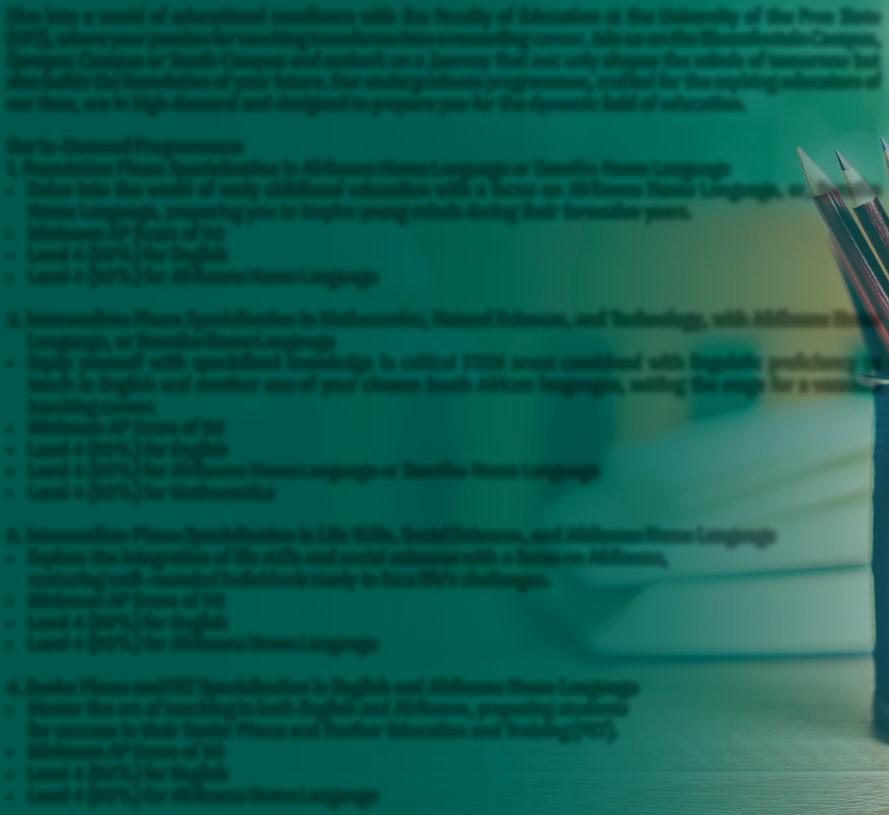
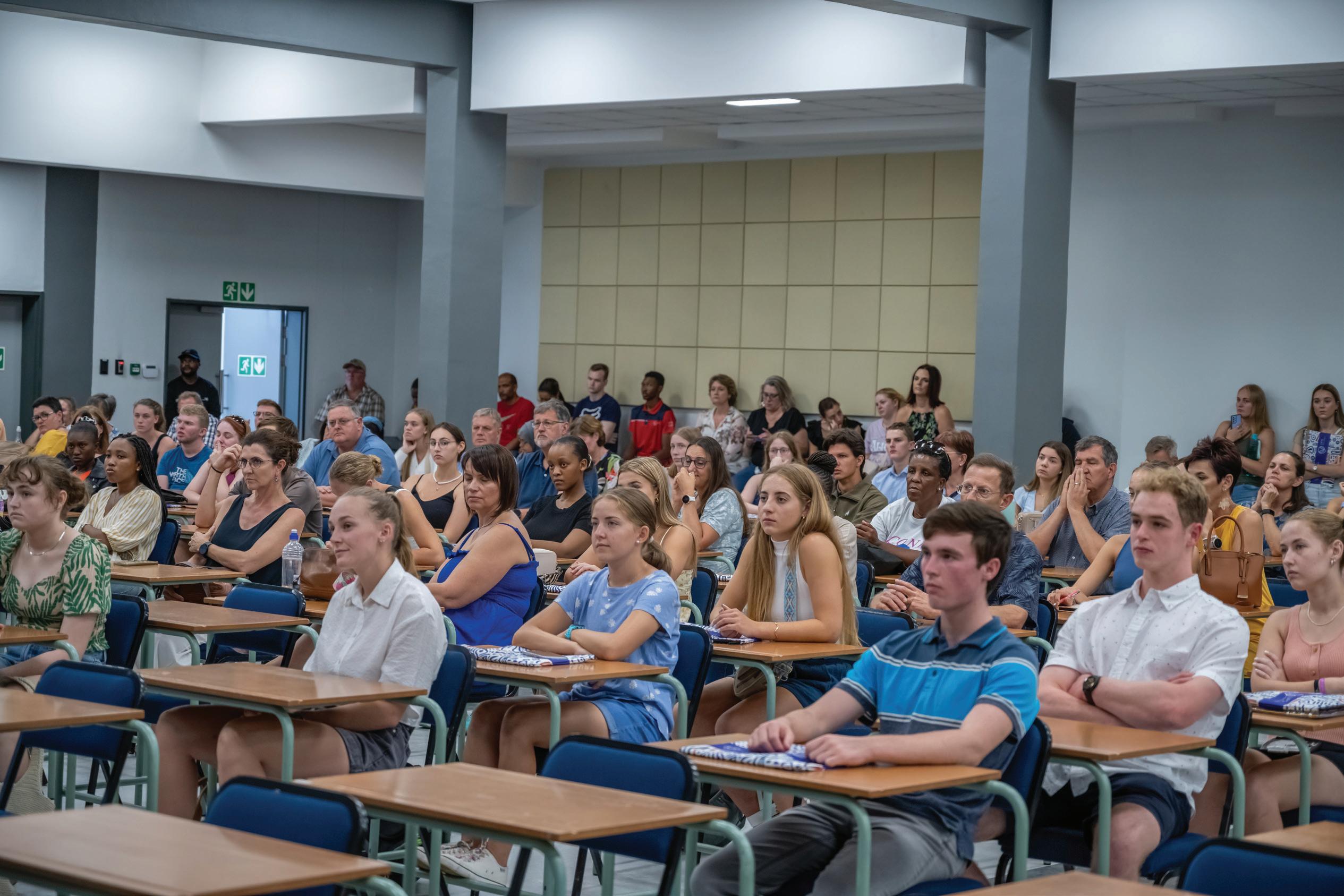
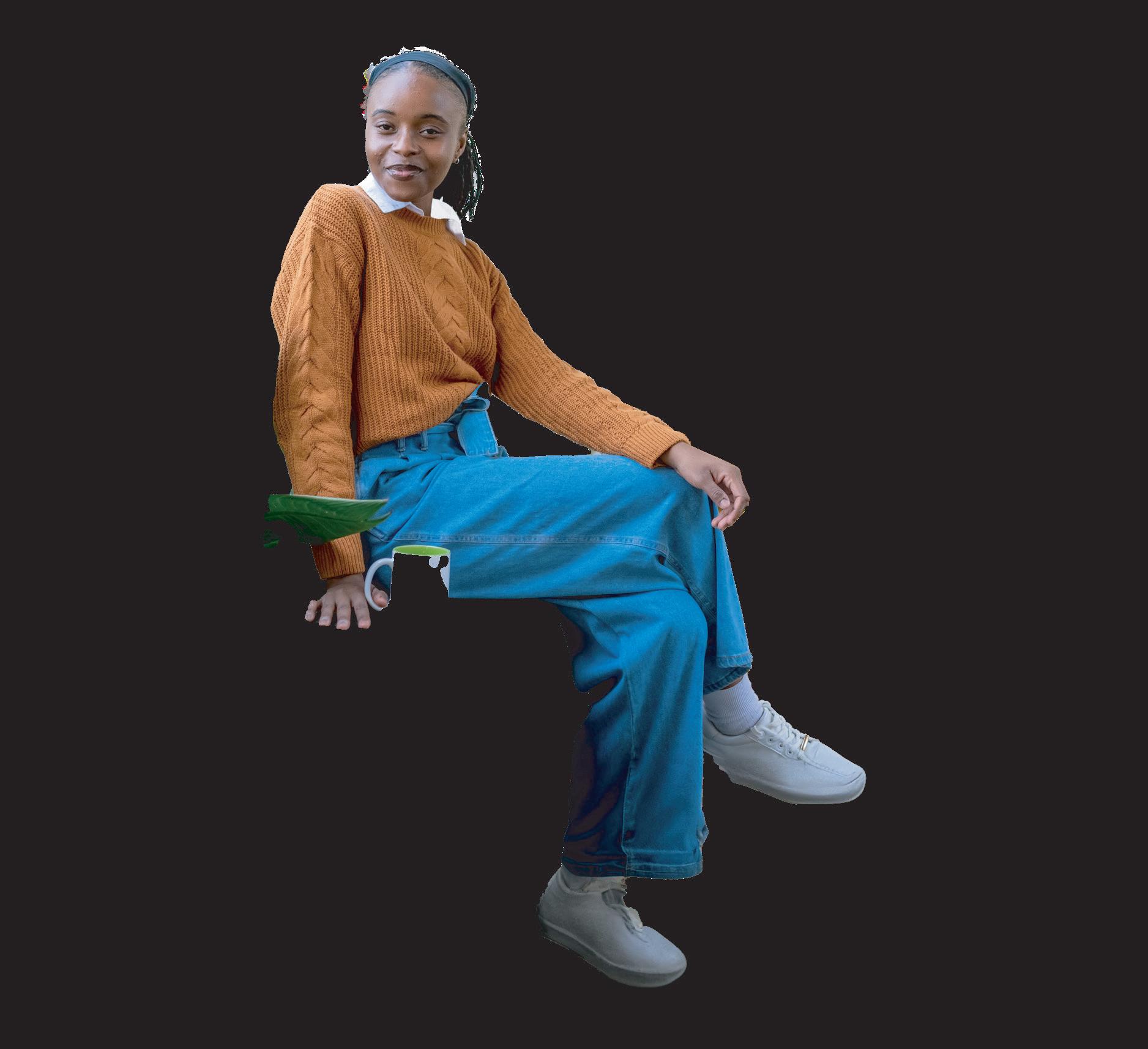
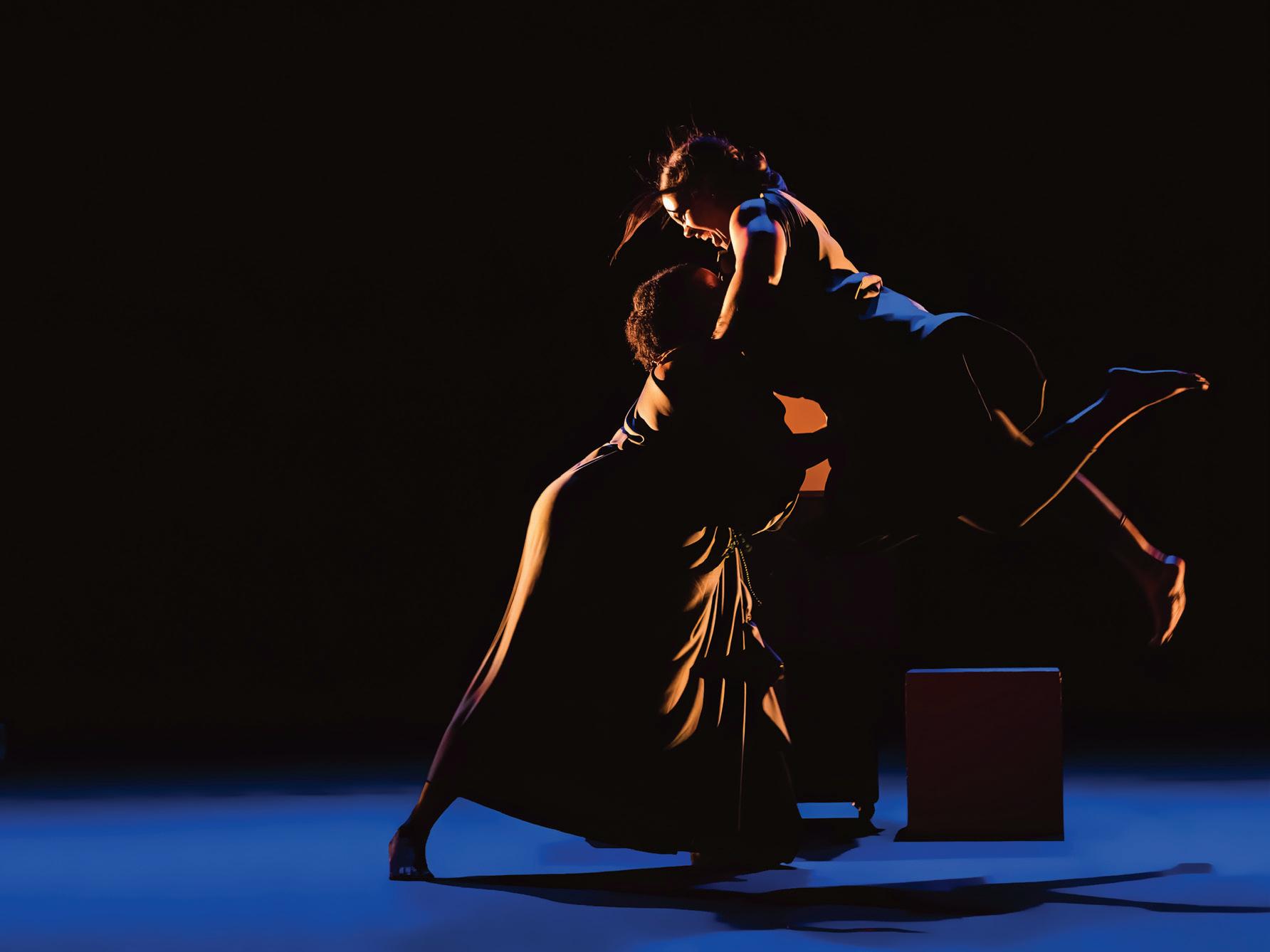
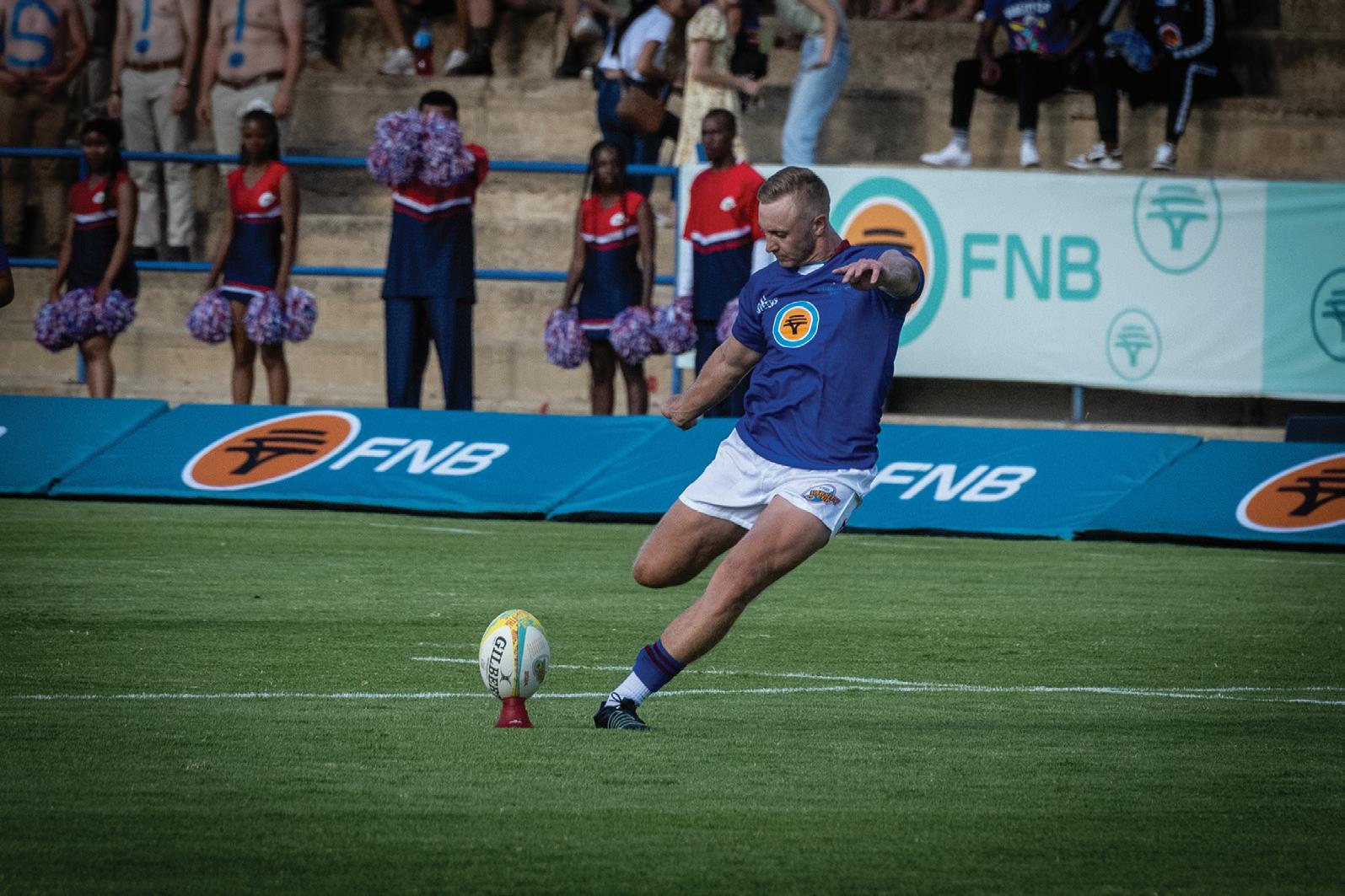
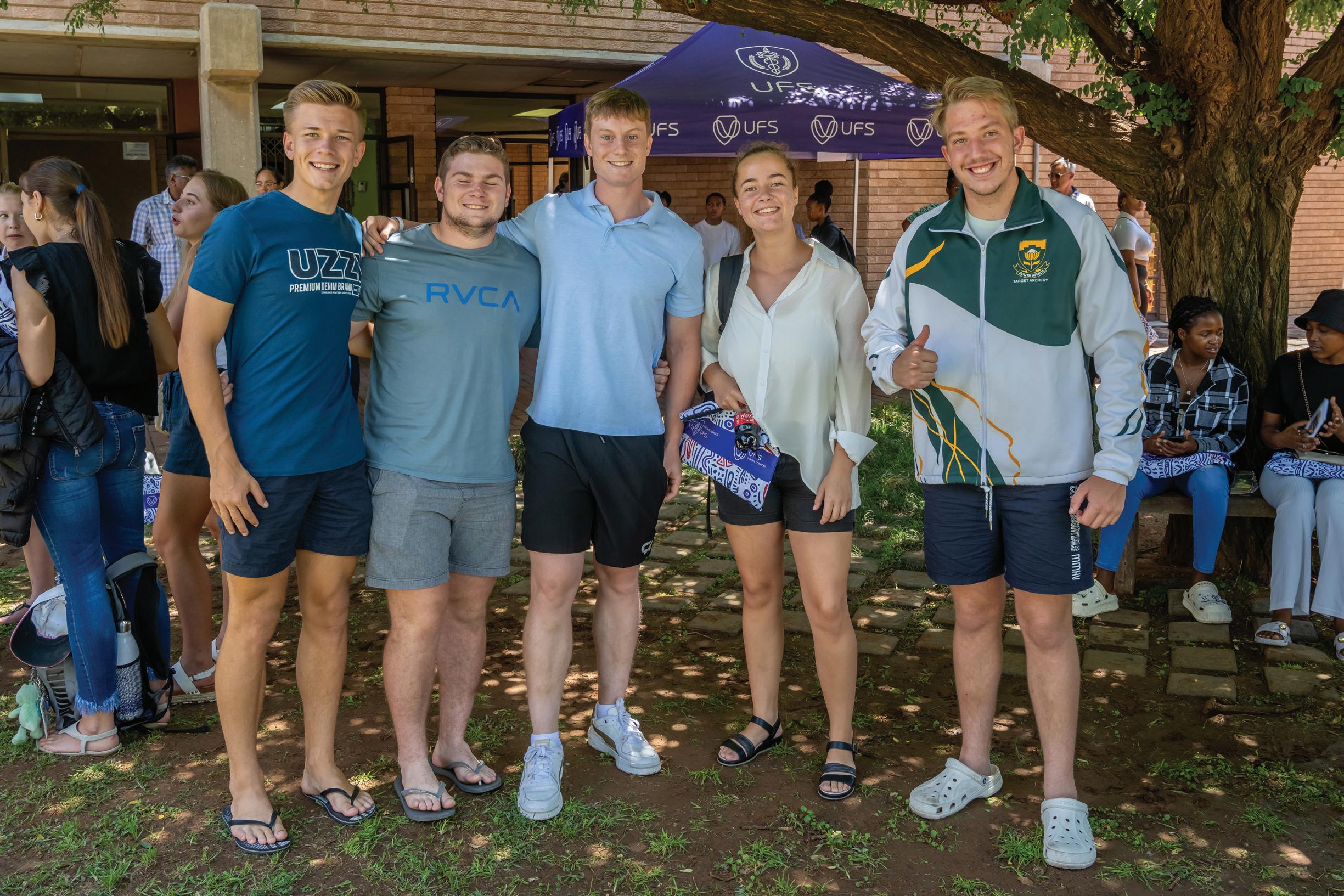
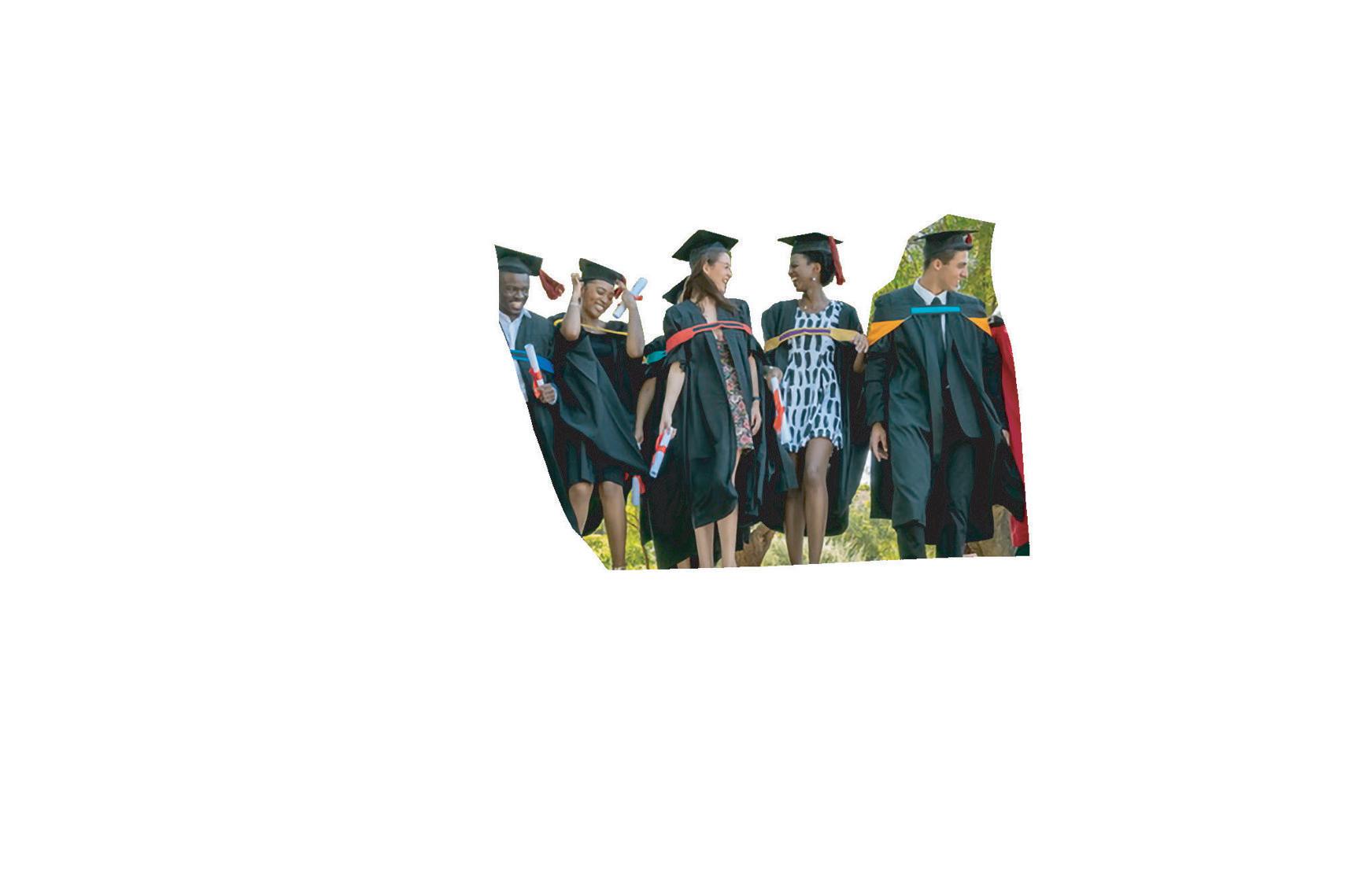
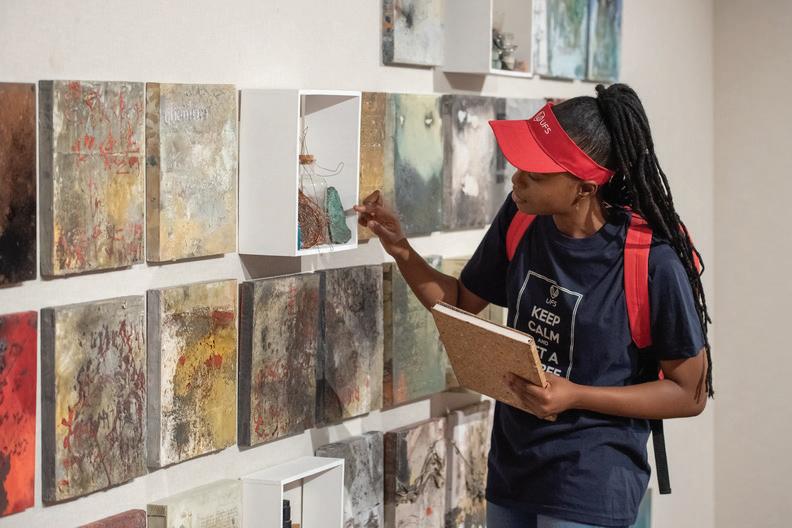
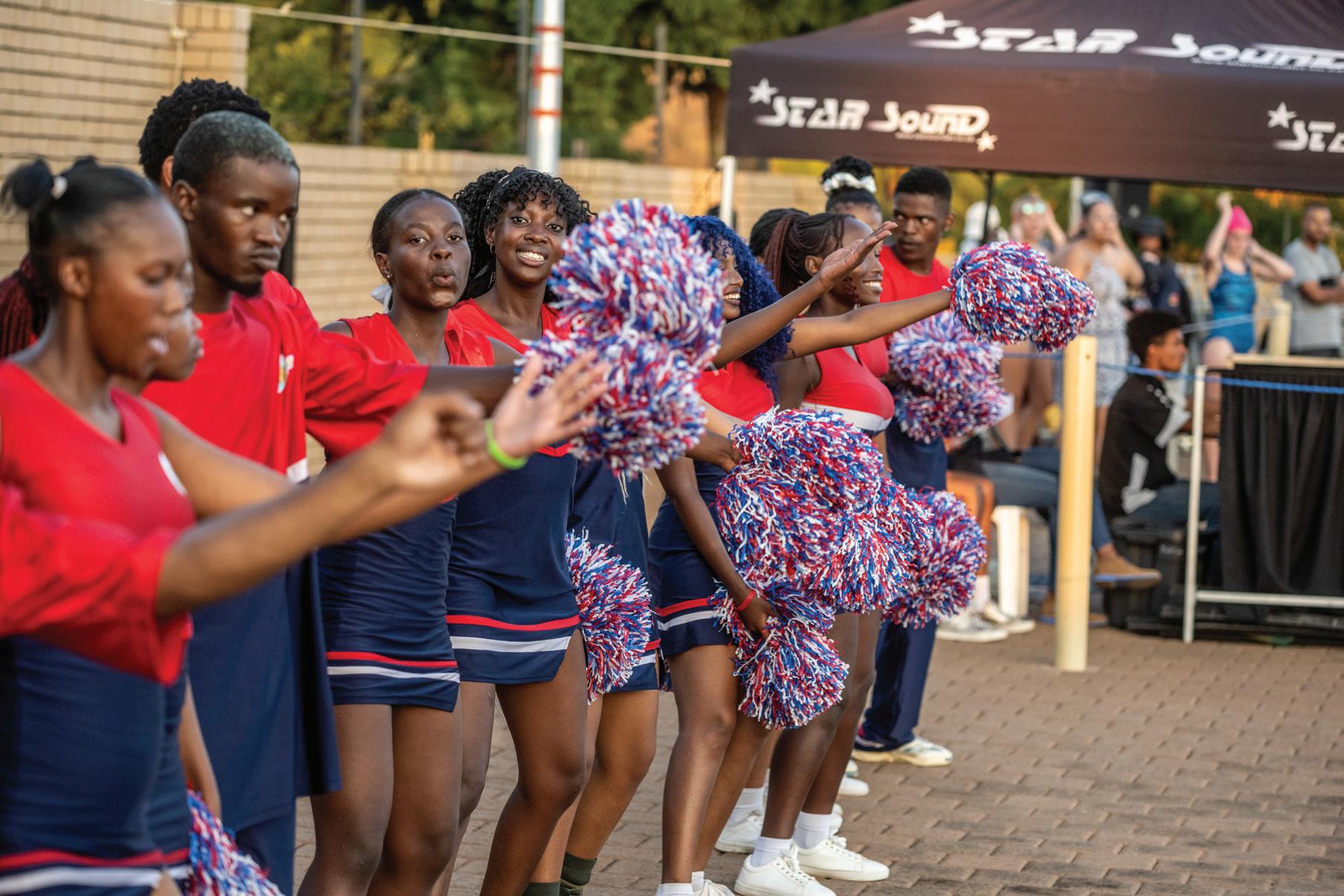
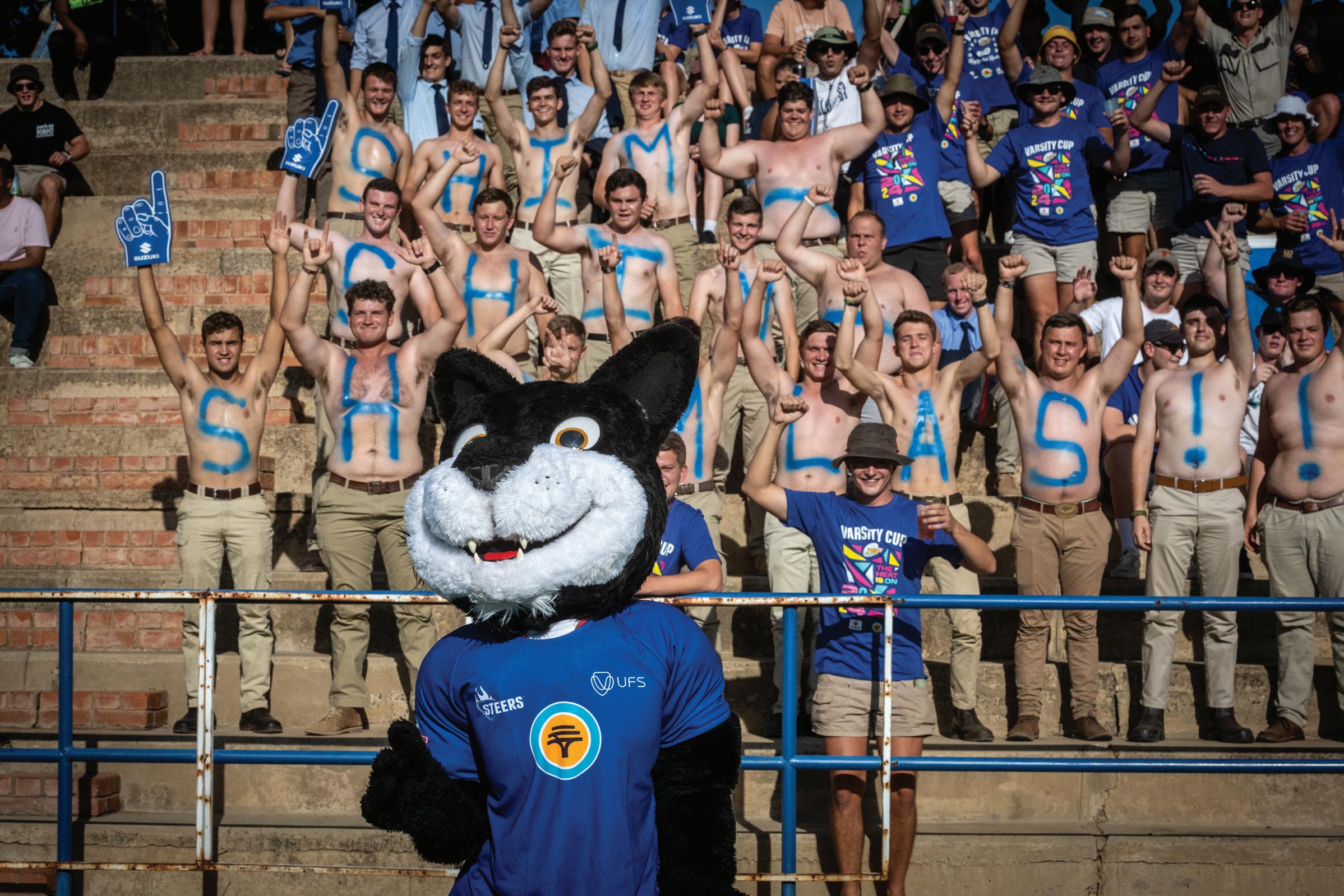
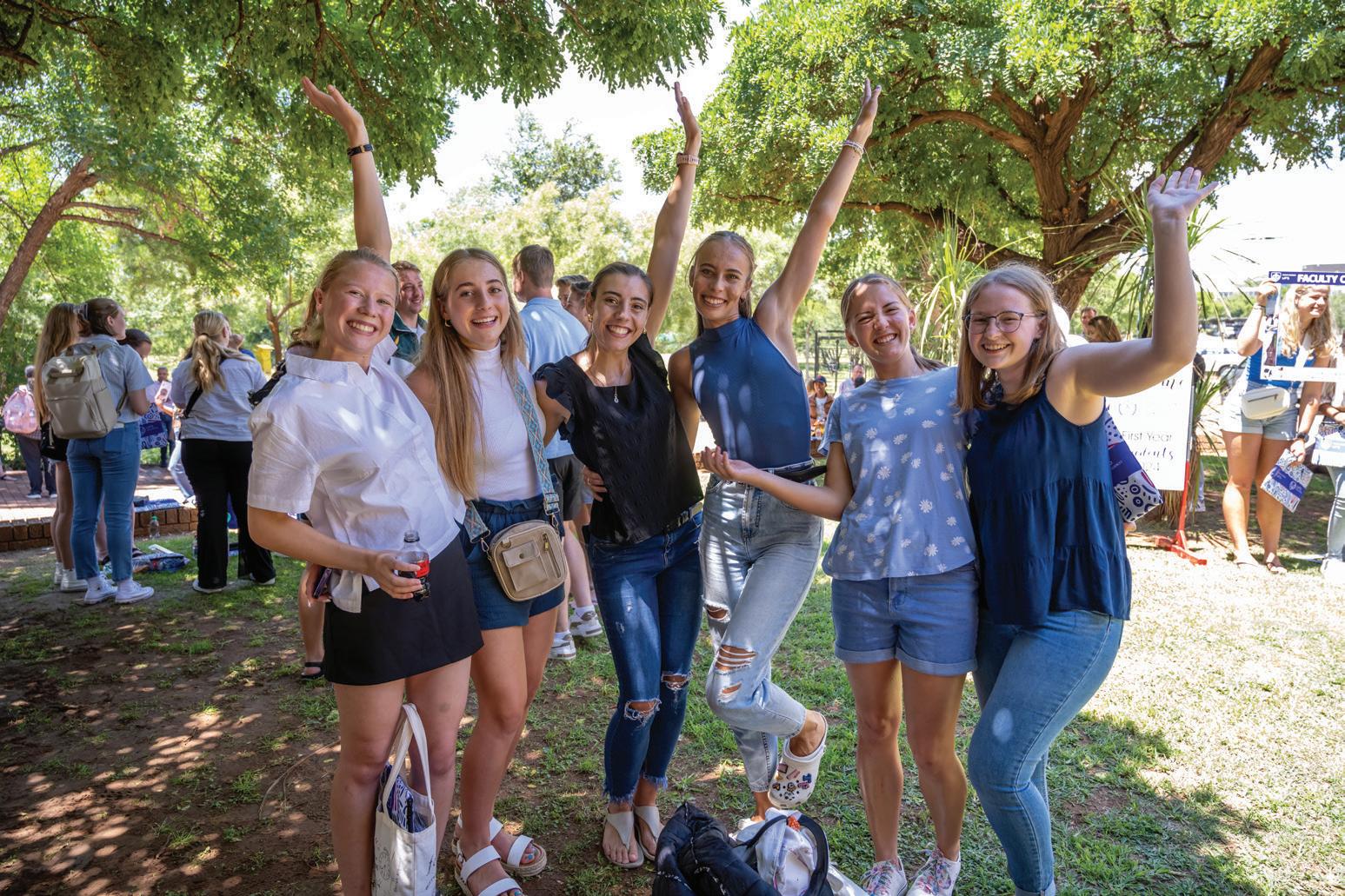
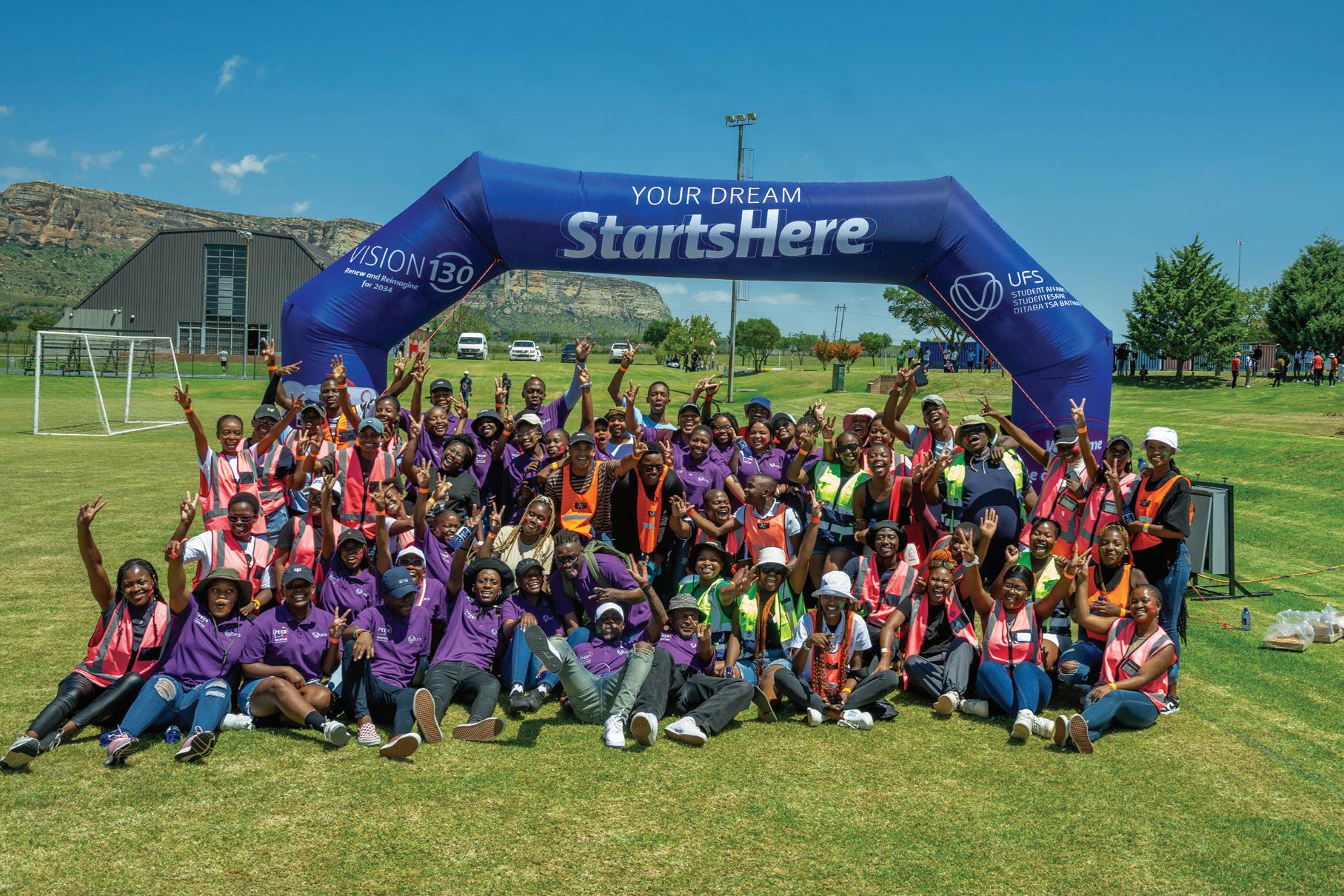
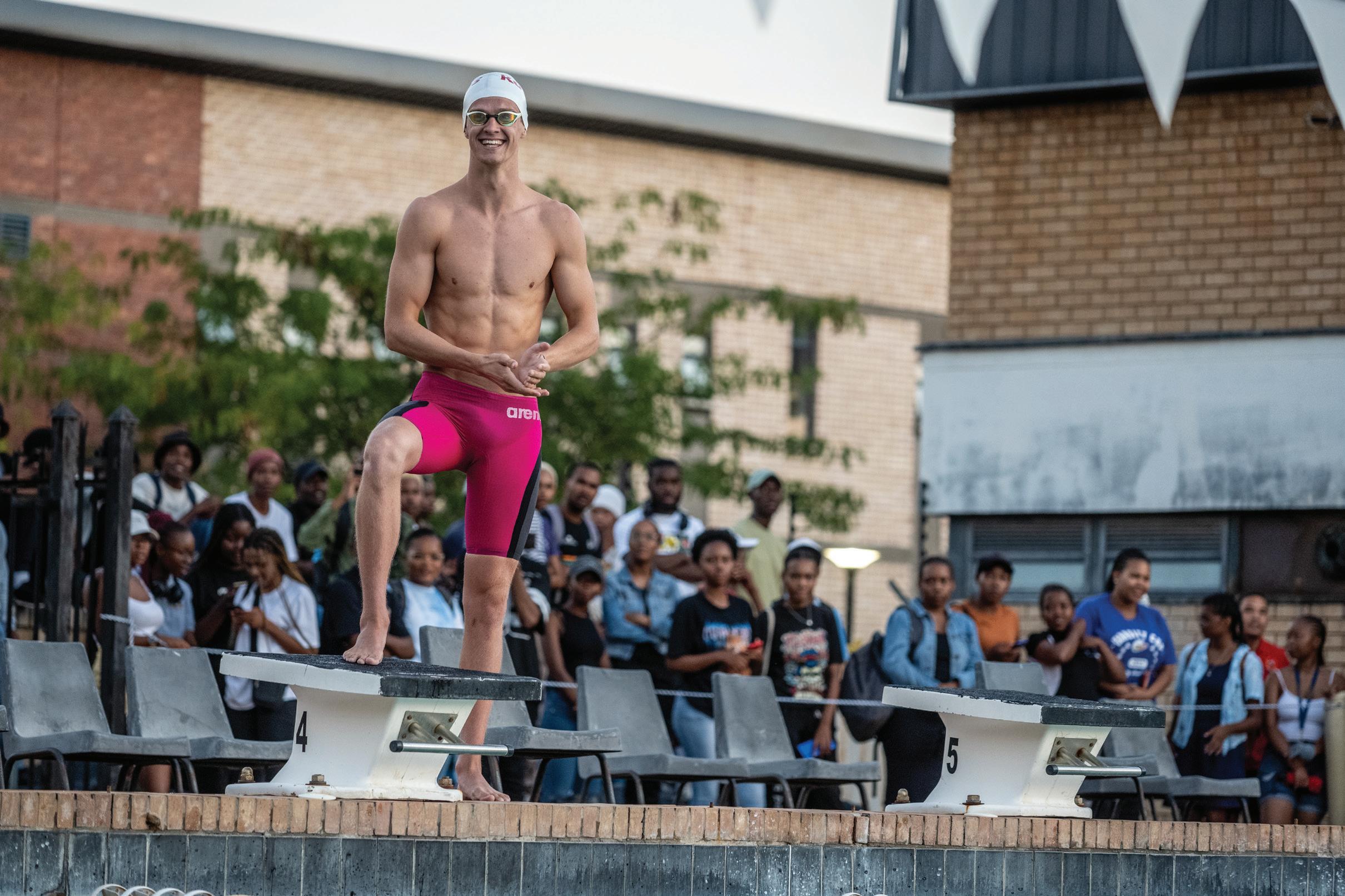
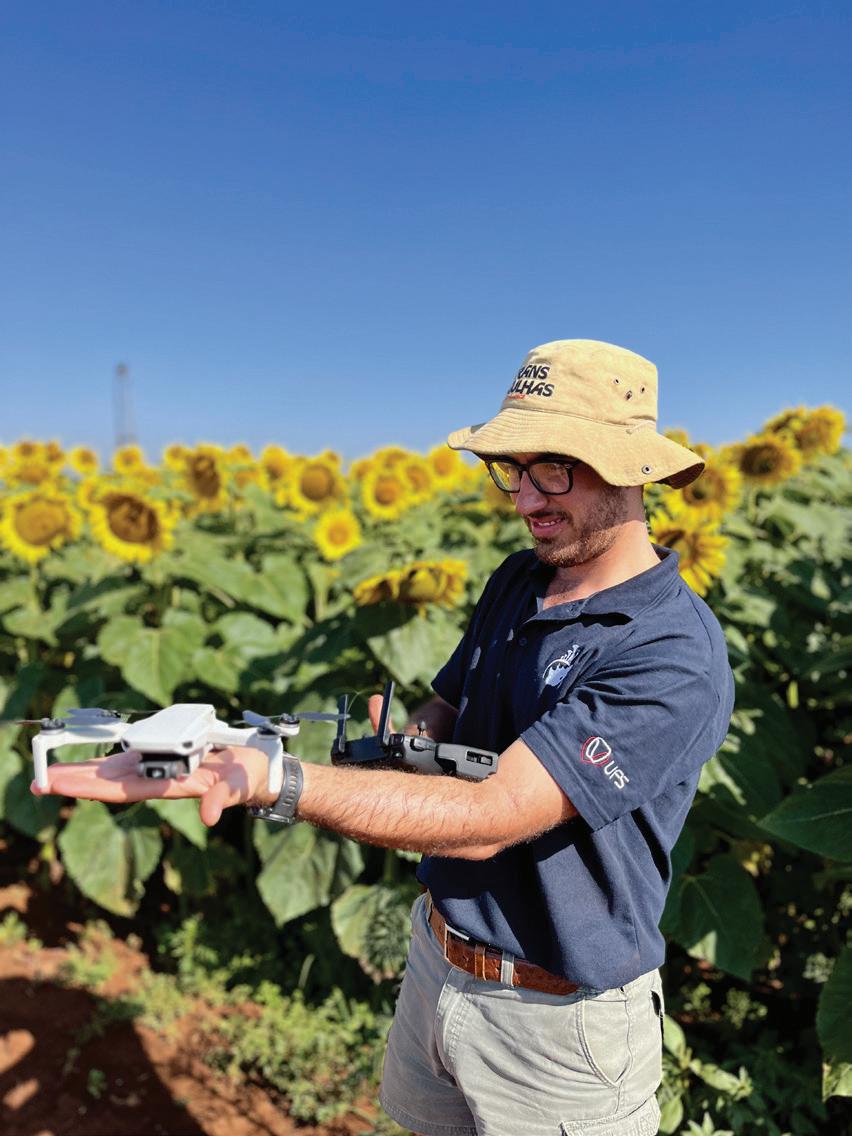
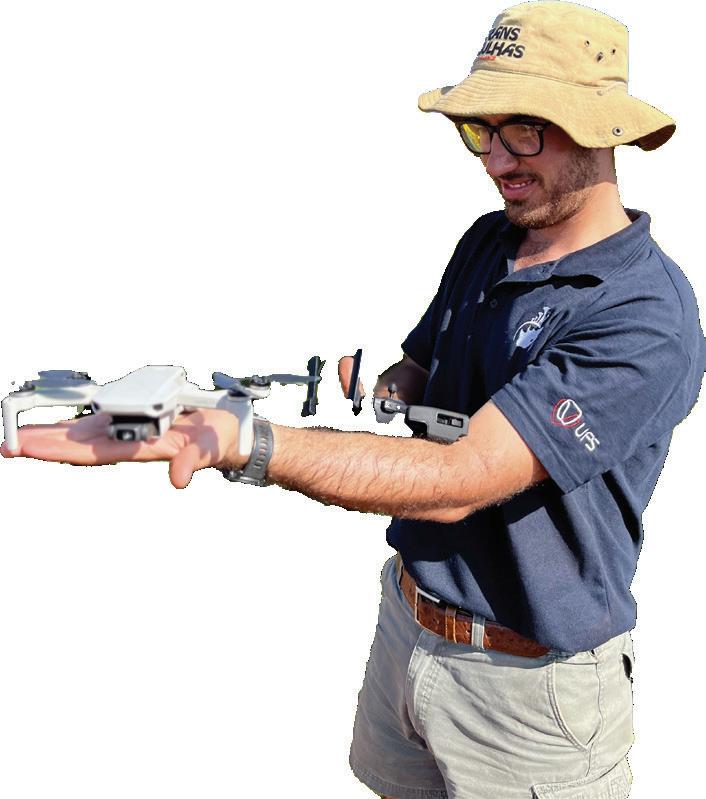
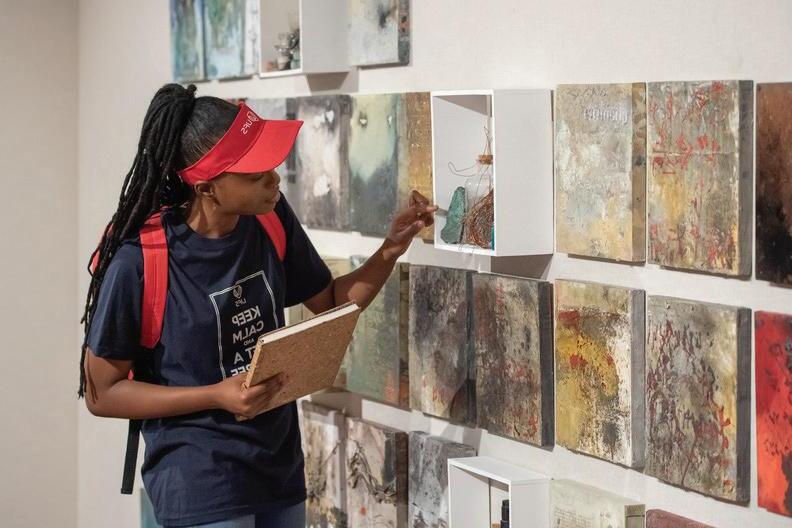
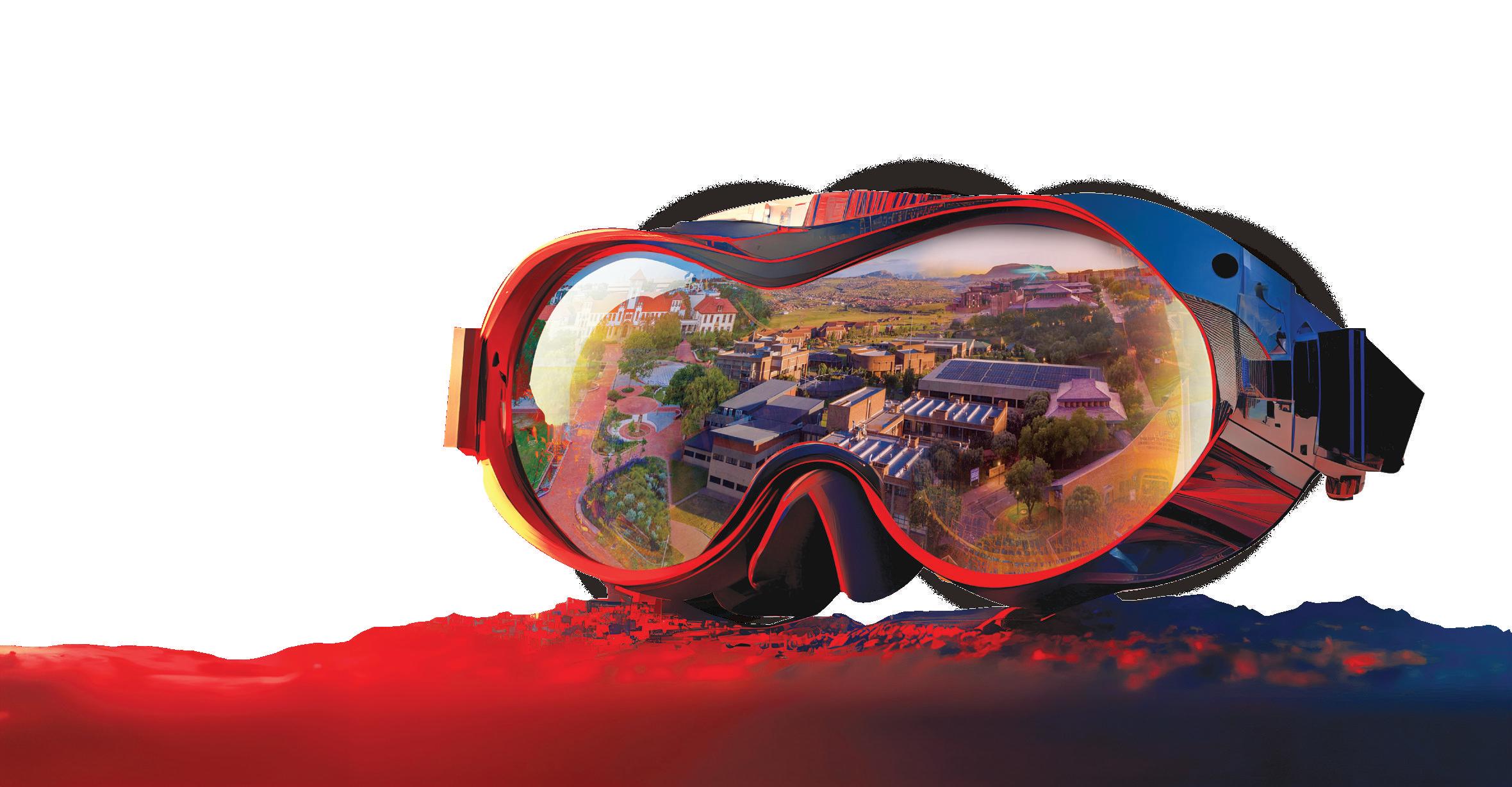
MESSAGE FROM THE VICECHANCELLOR AND PRINCIPAL:


















MESSAGE FROM THE VICECHANCELLOR AND PRINCIPAL:
Welcome to the University of the Free State.
Welkom by die Universiteit van die Vrystaat.
O a amohelwa ho University of the Free State.
Siyakwamukela eNyuvesi yase-Free State.
The University of the Free State (UFS) is a progressive university focused on transformation as a core strategy. Apart from being a university that excels in teaching, learning, and research, the UFS is focused on making a social impact on society.
At Kovsies, we have implemented cutting-edge measures for teaching at all levels.
State-of-the-art equipment allows for interactive and engaging classroom experiences, helping us to create the class of the future. We have become a leading institution in South Africa in terms of quality learning, teaching, and student success.
Our students are encouraged to seize every opportunity and to take part in student life activities. We are working hard to provide them with an unforgettable experience while they build a better tomorrow for themselves.
In terms of research, we invest in areas that will address relevant local, national, and global problems. Our researchers and academics are excelling in various fields and have achieved international recognition for their work.
When visiting our three campuses, visitors are met by social and environmentally friendly spaces that seek to make the campus a comfortable home away from home, with stunning artworks, impressive facilities, and

buildings where energy-saving systems have been introduced.
The UFS is committed to continuously renewing itself to ensure the retention of our vitality and relevance.
We aspire to be a research-led, student-centred, and regionally engaged university that contributes to development and social justice through the production of globally competitive graduates and knowledge.
Our Vision 130 is an elaboration of our strategic intent to reposition the university for 2034, when we will commemorate our 130th anniversary.
We have certainly come a long way since we opened our doors in 1904, and today we stand proud as an institution that lives up to its motto of inspiring excellence and transforming lives through quality, impact, and care.
Enjoy reading about the UFS –I look forward to welcoming you on our campuses!
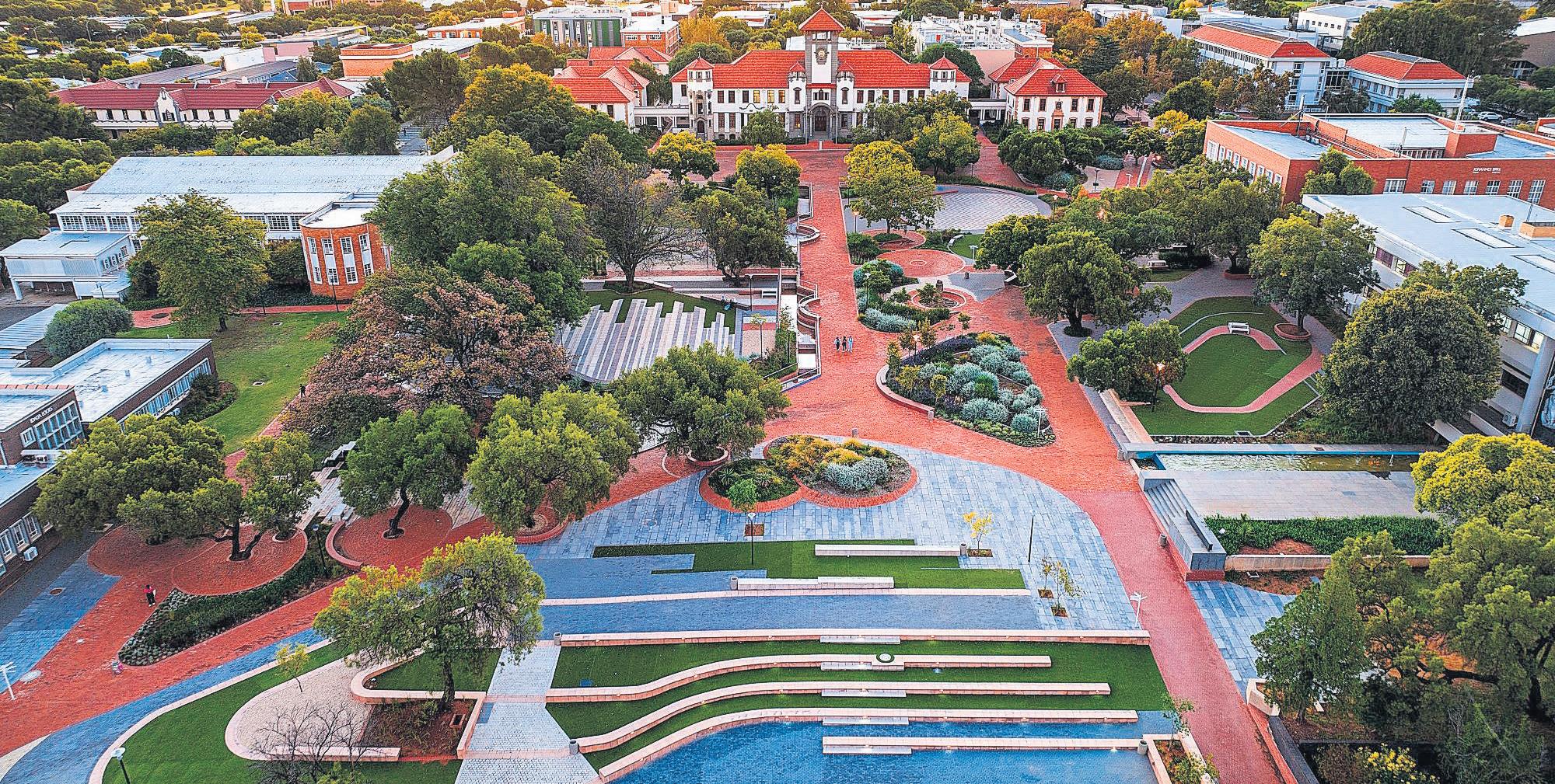


Wealth of knowledge awaits those who seek it
One of the University of the Free State’s (UFS) unique characteristics –and part of the essence of who it is – is the fact that it is one university spread across three diverse campuses in the Free State.
The Bloemfontein Campus is the oldest and largest campus where all seven faculties are represented. All campus facilities are available in one location, characterised by unique architecture and artworks, state-ofthe-art research, learning, teaching, and sports facilities, and ecofriendly, waterwise gardens. Brailleguided areas, ramps, and elevators for visually and mobility-impaired students contribute to our culture of care and social justice.
The South Campus, nestled in the hills to the south of Bloemfontein, is
home to the university’s Blended Learning Innovation and Support Services (Bliss), a subdivision of the Centre for Teaching and Learning (CTL). Utilising the South Campus’ multimedia production studio, Bliss has the primary goal of providing holistic, integrated services and support towards a new, blended learning future for the UFS. The BEd Foundation Phase programme is also offered on this campus, providing a well-rounded education that equips graduates with an integrated knowledge and understanding of teaching learners between the ages of six and nine years. The South Campus formed part of the former Vista University and was incorporated into the UFS in 2004.
The beautiful Qwaqwa Campus at
the foot of the Maluti Mountains in the Eastern Free State serves students from the immediate area and surrounding provinces. The campus has a strong focus on socioeconomic development, informed by the rural context in which it is located. Programmes, underpinned by a strong research agenda, focus on identifying the best possible strategies to create jobs and stimulate economic growth in this area. The campus is home to the internationally acclaimed Afromontane Research Unit (ARU), a high-excellence multi-disciplinary mountain research “community of practice” leading African mountain research on the continent. The campus was incorporated into the UFS in 2003.
The University of the Free State (UFS) is one of the oldest universities in South Africa – it opened its doors in Bloemfontein in 1904 as the Grey University College, with six students in The Humanities.
Today, Kovsies is a multi-campus institution with more than 39 000 students across two diverse campuses in Bloemfontein and one in Qwaqwa in the scenic Eastern Free State – with an ever-widening scope of active involvement in and contribution to its surrounding communities.
The university’s seven faculties (Economic and Management Sciences, Education, Health Sciences, The Humanities, Law, Natural and Agricultural Sciences,

Theology and Religion) also attract a significant number of international students and associates.
What sets the university apart is its holistic student support initiatives, enabling it to achieve some of the highest success rates in the country – delivering students who are in high demand in the global job market, as well as internationally renowned researchers.
An established network of industry partners and close collaboration with the public and private sectors, as well as a continuous process of transformation and curriculum renewal, dovetail to produce highly employable graduates.




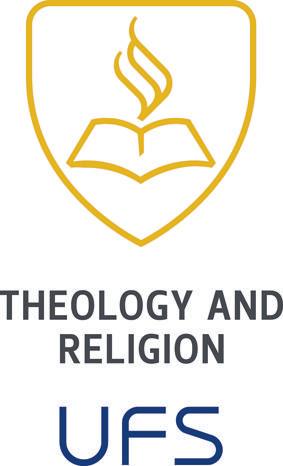
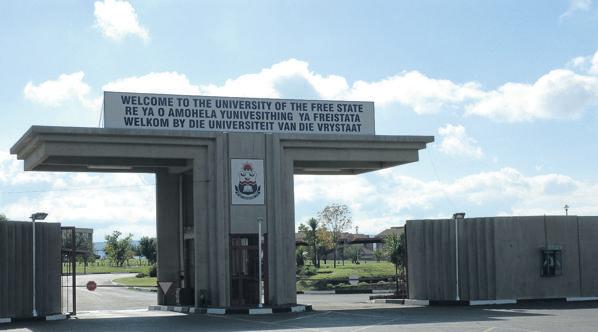



The University of the Free State (UFS) boasts a diverse, inclusive, and equitable university. Some of the achievements include:
) Student success and well-being: Comprehensive strategies around student support transpires in our students’ success. Innovative initiatives range from academic support in the form of tutorial programmes, writing and language support and academic advising, to providing for students’ most basic needs through the No Student Hungry bursary programme. We also place great emphasis on students’ mental health and wellbeing. A vibrant, active student life combined with stringent safety and security initiatives ensure social cohesion and an outstanding university experience.
) Graduate employability:
We enhance our students’ employability with the systematic mapping of graduate attributes in our curricular and co-curricular offerings. This ensures that graduates display the relevant skills, competencies, knowledge, and attitudes essential for success in the global workplace. The UFS is a beneficiary of the esteemed Kresge Foundation, sponsor of the Siyaphumelela project, which harnesses data analytics to promote student success. The university is also a proud grant recipient of the Michael and Susan Dell Foundation, which enables it to scale its virtual services to reach a maximum number of students.
) Developing young academics: We place a strong emphasis on developing the careers of young scholars, with focused initiatives for providing peer mentorship and reviewing opportunities for junior staff members. Among these initiatives are the Prestige Scholars programme and the Transforming the Professoriate mentoring programme, where emerging scholars get tailor-made, comprehensive, and holistic development opportunities in preparation for their future roles as professors and academic leaders.
During April 2024, the university will be launching its Women’s Academic Advancement programme to facilitate excellent academic leadership among women academics.
) Innovative approaches to energy and water management: We use our strategic position to drive sustainability issues through the establishment of green campuses and the adoption of sustainable built environment


practices. This has taken the form of establishing energy-efficient buildings, extensive solar energy plants, waterwise landscaping, as well as water-saving initiatives such as greywater systems, water restrainers, and pressure control systems.
) Internationalisation strategy: As a highly internationalised university with a proud history of international engagements, we prioritise the preservation and growth of staff and student diversity and attract the most
In recent years the UFS has excelled as a research-led, student-centred, and regionally engaged university that contributes to societal development and social justice through the production of globally competitive graduates and knowledge.
The UFS’ commitment to excellence and transformation has been steadfast, enabling it to remain relevant and to contribute effectively towards societal development – regionally, nationally, and globally.
Our transformation agenda – Vision 130 –marks renewal and re-imagination for even greater impact as a centre for innovation, research, dissemination, and application.
We want to continue growing and extending our influence and impact locally, regionally, and globally – focusing on academic excellence, quality and impact, maximum societal impact with sustainable relations, and establishing the UFS as a diverse, inclusive, and equitable university.
“The
brilliant minds from across the globe. As a responsible global citizen, the UFS uses the United Nations’ (UN) Sustainable Development Goals (SDGs) as a primary lens to assess and expand its global impact.
) Achievements in research:
We are steadily increasing the number, quality, diversity, and output of our research scholars, making significant contributions to global knowledge in various fields in line with our aspiration to be a research-led university.
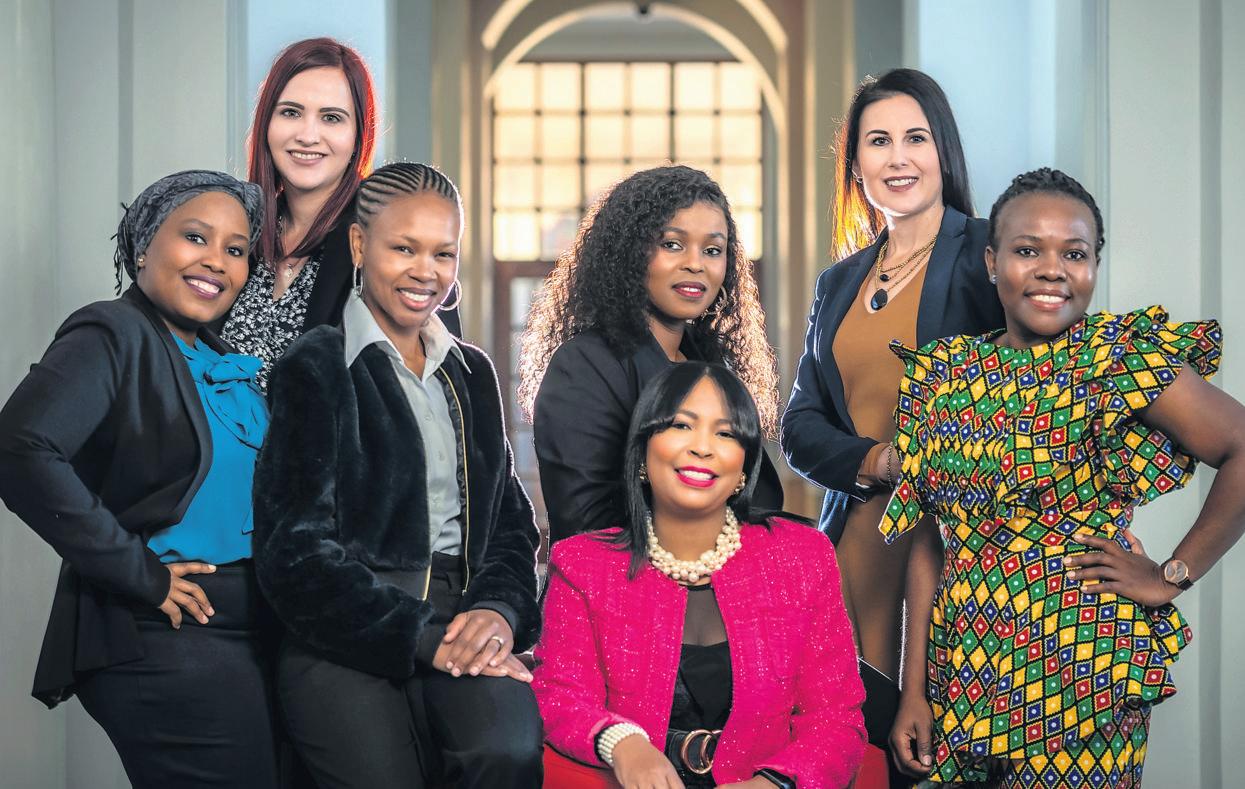
aimed at transforming the university’s academic leadership.

The University of the Free State boasts many areas of excellence.
These include:
) Academy for Multilingualism –aimed at developing innovative multilingual pedagogies in pursuit of social justice.
) Afromontane Research Unit –promoting comprehensive international research aimed at uplifting vulnerable mountain communities.
) Boyden Observatory and Naval Hill Planetarium – displaying and communicating South Africa’s astronomical heritage.
) Centre for Gender and Africa Studies – providing an inter-faculty approach to understanding Africa and gender issues.
) Centre for Microscopy –implementing cutting-edge electron microscopy equipment for globally competitive research.
) Centre for Teaching and Learning (CTL) – advancing evidence-based innovation that promotes excellence in learning and teaching for student access with success.
) Clinical Simulation and Skills Unit – enhancing the education and training of medical and nursing students, as well as the safety of patients, by implementing the very latest simulation technology.
) FARMOVS – conducting worldclass clinical research for renowned international clients in the pharmaceutical industry, and successfully doing so for the past 50 years.
) Free State Centre for Human Rights – drawing together multidisciplinary academics, practitioners, and activists to provide excellence in human rights studies, and houses the Bram Fischer Postgraduate Scholarship in Law.
) International Studies Group –accessing prestigious international research opportunities for high-calibre postgraduate students and postdoctoral fellows from across the world.
) Institute for Groundwater Studies – leading the field in sustainable management of
groundwater resources in Africa.
) Merensky Group for Aerial Geological Image Classification (MAGIC) Laboratory – developing progressive drone-based geological imaging in South Africa.
) National Control Laboratory for Biological Products – performing vaccine testing for the World Health Organisation (WHO).
) Next Generation Sequencing Unit – providing impactful research within the field of genomics sequencing.
) Robert WM Frater Cardiovascular Research Centre – leading cardiovascular research in sub-Saharan Africa.
) Science Education Centre –driving professional development for teachers, learner support, and parent empowerment.
) UFS Law Clinic – merging impactful pro bono litigation with practical student training as one of only a handful of university law clinics in South Africa, by working in collaboration and cooperation with stakeholders..
UFS Research Chairs
) City-Region Economies (SARChI); ) Pathogenic Yeasts (SARChI); ) Vector-borne and Zoonotic Pathogens (SARChI); ) Disease Resistance and Quality in Field Crops (SARChI); ) Solid-State Luminescent and Advanced Materials (SARChI);
) Higher Education and Human Development (SARChI); and ) Mathematics, Natural Sciences and Technology Education (Sanral)
Contact details
Bloemfontein Campus: 051-401-9111
Qwaqwa Campus: 058-718-5000. South Campus: 051-401-9111. info@ufs.ac.za ufs.ac.za/
More information: ) Facebook: facebook.com/UFSweb/; ) Twitter: twitter.com/UFSweb; ) Instagram: instagram.com/ufsweb/; ) LinkedIn: linkedin.com/school/u-f-s/ mycompany/; and ) YouTube: youtube.com/@UFSWeb.
The University of the Free State (UFS) boasts many well-known alumni in all spheres of life. Here are a few:
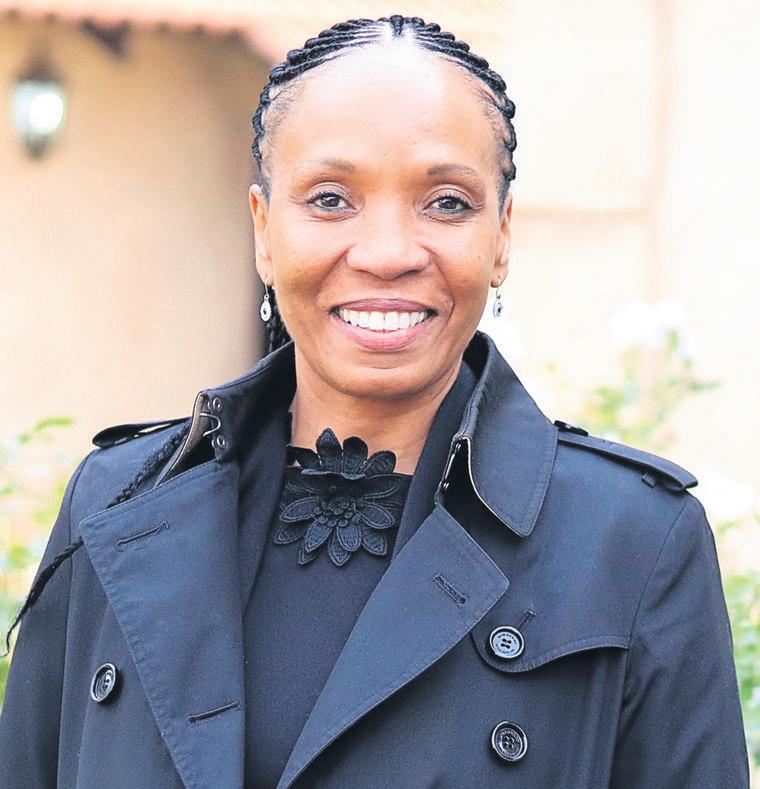
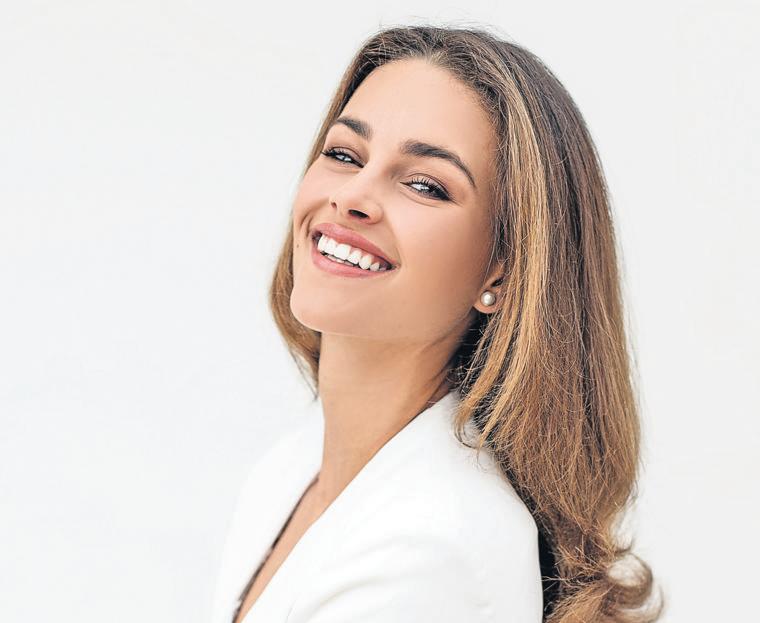



Jaco Jacobs, an award-winning author, was born in Carnarvon and graduated as head boy in 1998, winning the Poort Prize for prose and poetry during his matric year. He earned a BA in Communication Studies (cum laude) from the UFS in 2001, receiving the Dean’s Medal for being the top undergraduate in the Faculty of the Humanities. In 2019, he was honoured with the Chancellor’s Cum Laude Award.
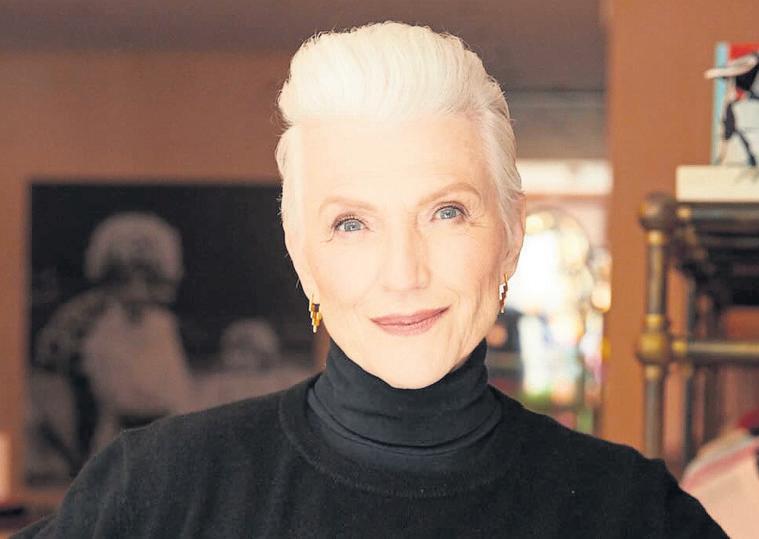





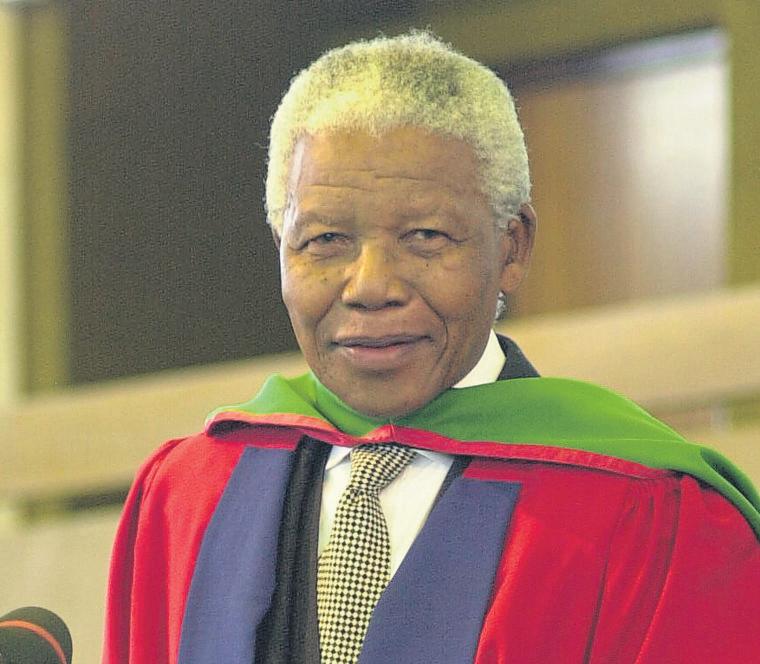

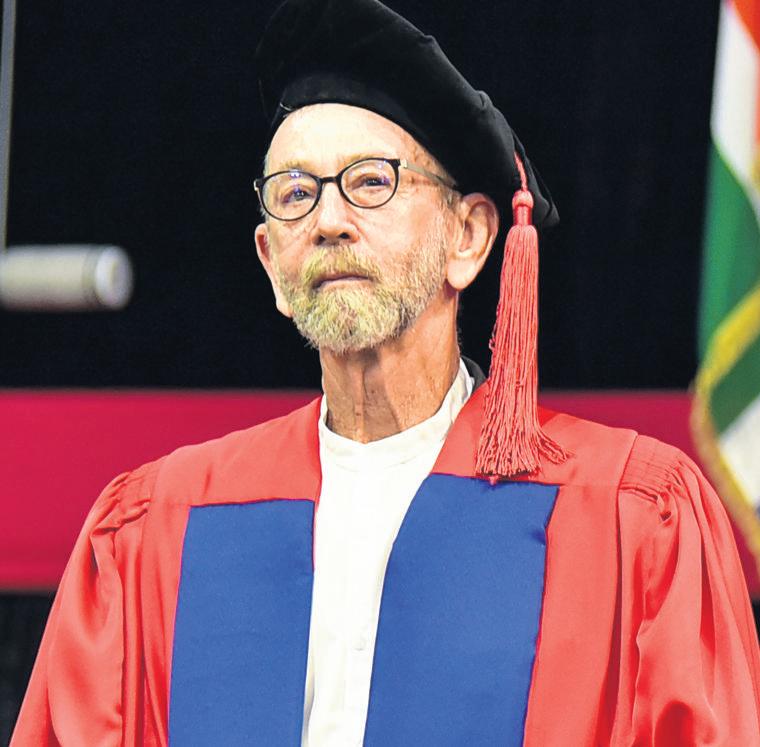
On 21 April 2023, the Faculty of Natural and Agricultural Sciences at the University of the Free State (UFS) conferred an honorary doctorate in Zoology upon Dr Dave Pepler – nature enthusiast and conservation philosopher – for his significant contribution to society as ecologist,
and the Oscar-winning “Tsotsi”. He received an honorary doctorate from the UFS
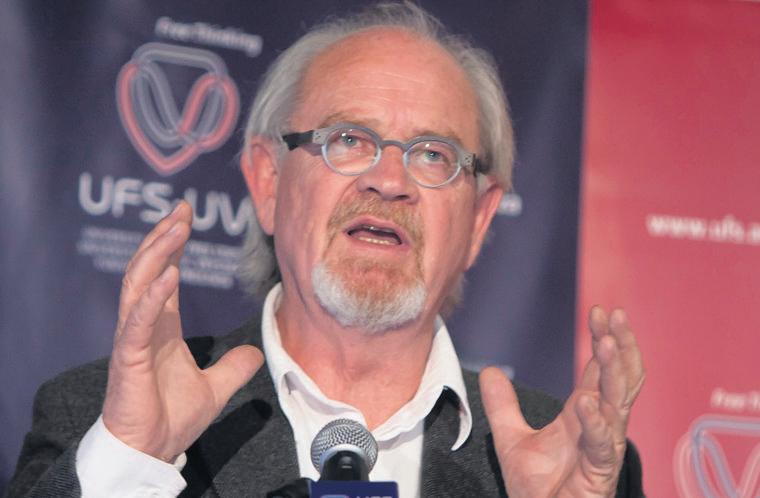
du
is a distinguished South African author, journalist, and political analyst known for his inclusive commentary and deep insights into South Africa’s socio-political landscape. Max received his honorary doctorate from the UFS in 2016.

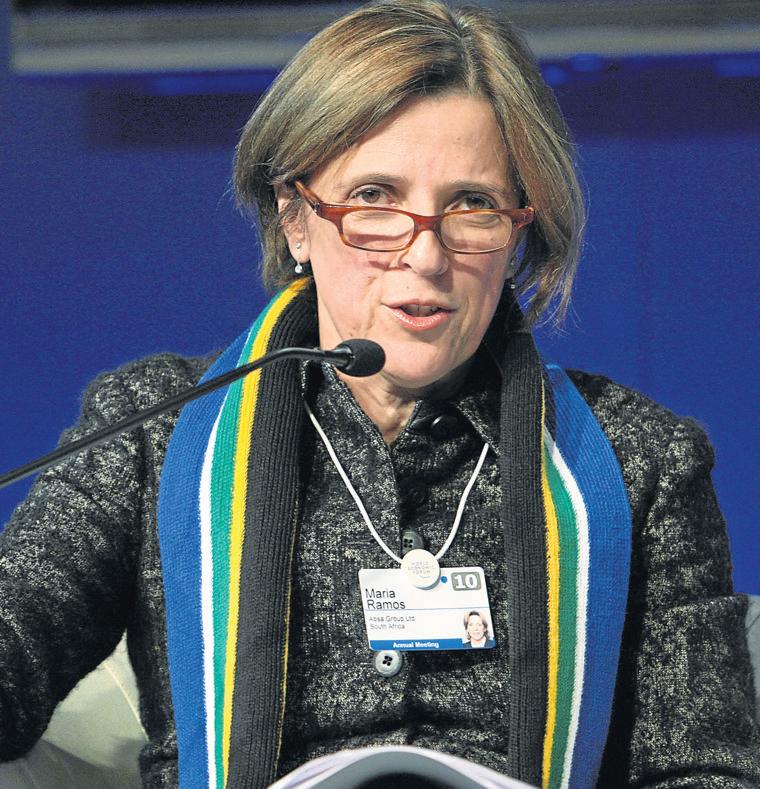
and
of the

Several well-known sportsmen and women started out at Kovsies, performing at the top of their game in a variety of sports. Here are some of them:




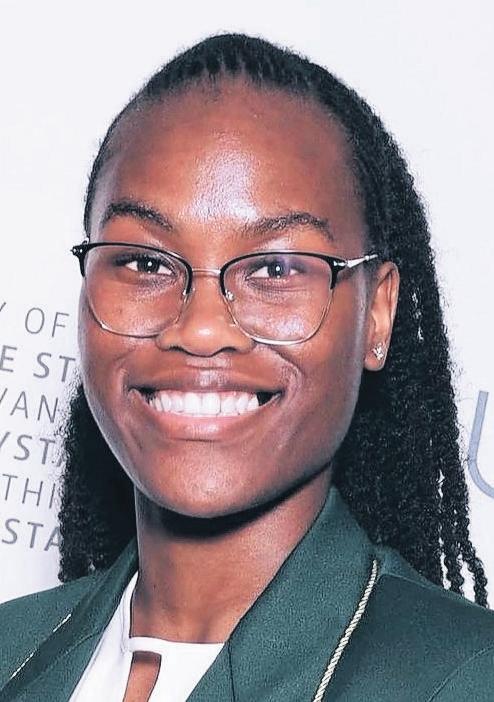
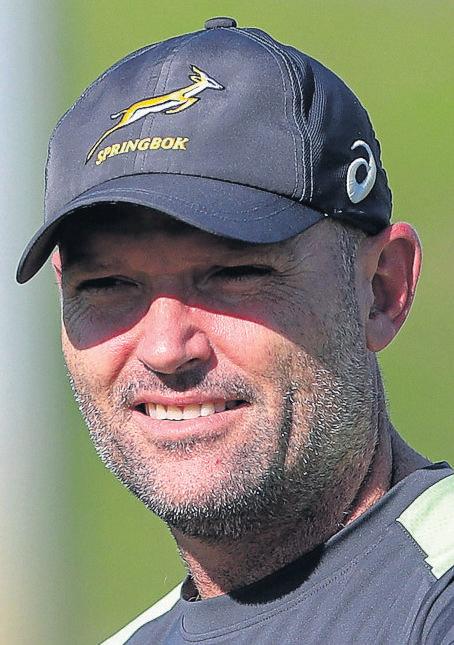

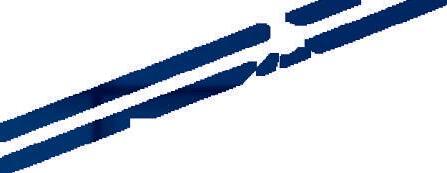
















The University of the Free State creates opportunities and growth through leading learning and teaching, focused research, and impactful engagement with society We offer world-class benefits to all individuals
Our culture promotes equity, ubuntu, and accountability


We address challenges and issues as they emerge, and we deal with them openly in a way that promotes social justice and human rights




Situated in the heart of South Africa, our character of caring and diversity translates into an outstanding university experience.










APPLICATION, VERIFICATION, AND LOGIN
Choose which of the following applies to you: Currently in Grade 12 or completed Grade 12
STEP 3

Please keep your email and cellphone number the same, since this is how you will receive important communication.

Remember to indicate if you need on-campus accommodation or financial aid.
ENTER YOUR STUDY CHOICES


Complete all the fields. Use the rulebooks to obtain more information about the qualifications and curricula.

UPLOADING SUPPORTING DOCS IN PDF OR JPEG FORMAT
• Your SA ID or passport if you are an international student Your parent’s ID if you are under 18
• Your Grade 11 year-end results
• Your mid-year Grade 12 results
Your Grade 12 certificate if you have already matriculated
STEP 5

• Your academic record if you are/were a student at another institution of higher learning USAf accreditation if you do not have an endorsed South African Senior Certificate. Visit: https:/ lmb.usaf.ac.zal for conditional exemption. STEP 4


SUBMIT AND GET YOUR STUDENT NUMBER
Remember, if you receive your student number it does not mean that you are accepted as a UFS student yet. Remember, an incomplete application will delay your application process
#Please note that these are abbreviated online application steps

APPLY NOW!
Applications close 30 September for non-selection programmes. Consult the prospectus for application closing dates for selection programmes.


The Faculty of Health Sciences at the University of the Free State (UFS) in Bloemfontein proudly celebrates its 55th anniversary this year.
In such, it is continuing its legacy as a leading institution in producing top-tier healthcare professionals, including medical doctors, nurses and allied health specialists. Renowned globally for its innovative research and the high calibre of its students, the faculty stands as a beacon of excellence in health sciences education.
As part of its commitment to advancing healthcare education, the faculty has recently undertaken the construction of a state-of-theart library.
This new facility, which will soon welcome its first visitors, is dedicated exclusively to health-related materials, supporting students in their pursuit of excellence in various health disciplines.
The 2023 December graduation ceremony of the School of Clinical Medicine was a testament to the faculty’s dedication to quality, as it celebrated the achievements of five Cum Laude medical graduates, one of whom achieved distinctions in all subjects. This achievement highlights the faculty’s role in nurturing exceptional talent, ready to lead in the healthcare industry.
Looking ahead to the 2025 academic year, the faculty invites prospective students to apply, with the application process having opened on 1 April.
With a focus on developing future leaders in healthcare, the UFS Faculty of Health Sciences offers a range of programmes including Dietetics, Biokinetics, Sport Coaching, and Medical Physics, each designed to equip students with the skills and knowledge to excel
in their chosen fields.
The Biokinetics programme, for instance, integrates health promotion and rehabilitation, preparing students to work in diverse settings such as private practice, sports teams, and government sectors. Similarly, the Dietetics programme emphasises the science of nutrition and its application to health and disease management, offering graduates a wide array of career opportunities in clinical, community, and food service management settings.
For those with a passion for sports and physical training, the Sport Coaching programme offers a unique opportunity to blend scientific knowledge with practical skills, contributing significantly to sports development at all levels.
Meanwhile, the Medical Physics programme addresses the critical need for specialists who can apply physics principles to medicine, particularly in the diagnosis and treatment of diseases.
The faculty’s selection process is rigorous, reflecting its commitment to admitting students who not only meet the academic requirements, but also demonstrate a passion for their chosen field. With limited spaces available, early application is encouraged.
As the UFS Faculty of Health Sciences continues to grow and evolve, it remains steadfast in its mission to create a futurefocused learning environment that nurtures the healthcare leaders of tomorrow.
Celebrating 55 years of excellence, the faculty invites aspiring healthcare professionals to join its ranks and become part of a legacy of innovation and excellence in health sciences education.
) For more information and to apply, visit UFS Health Sciences.
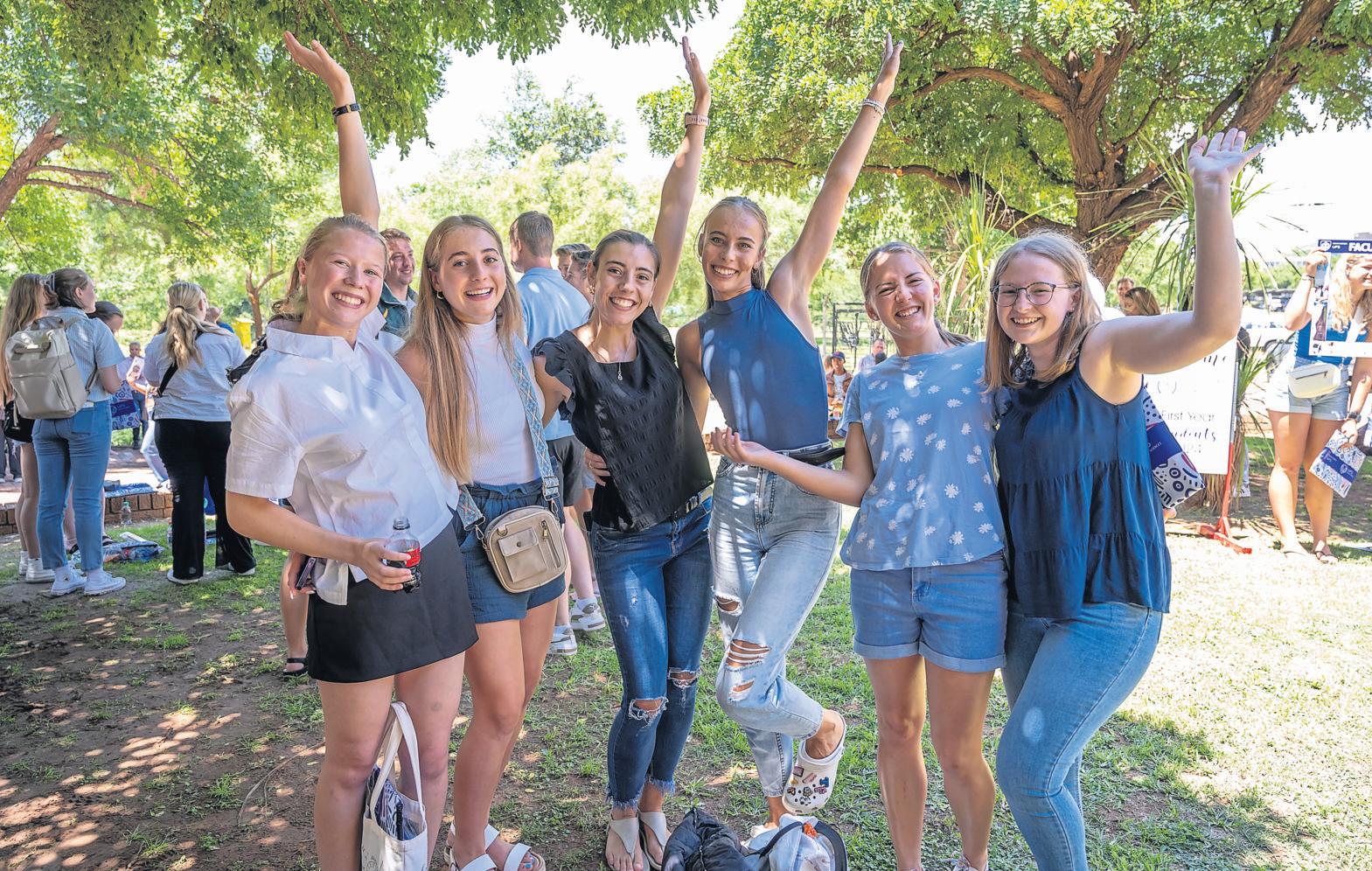





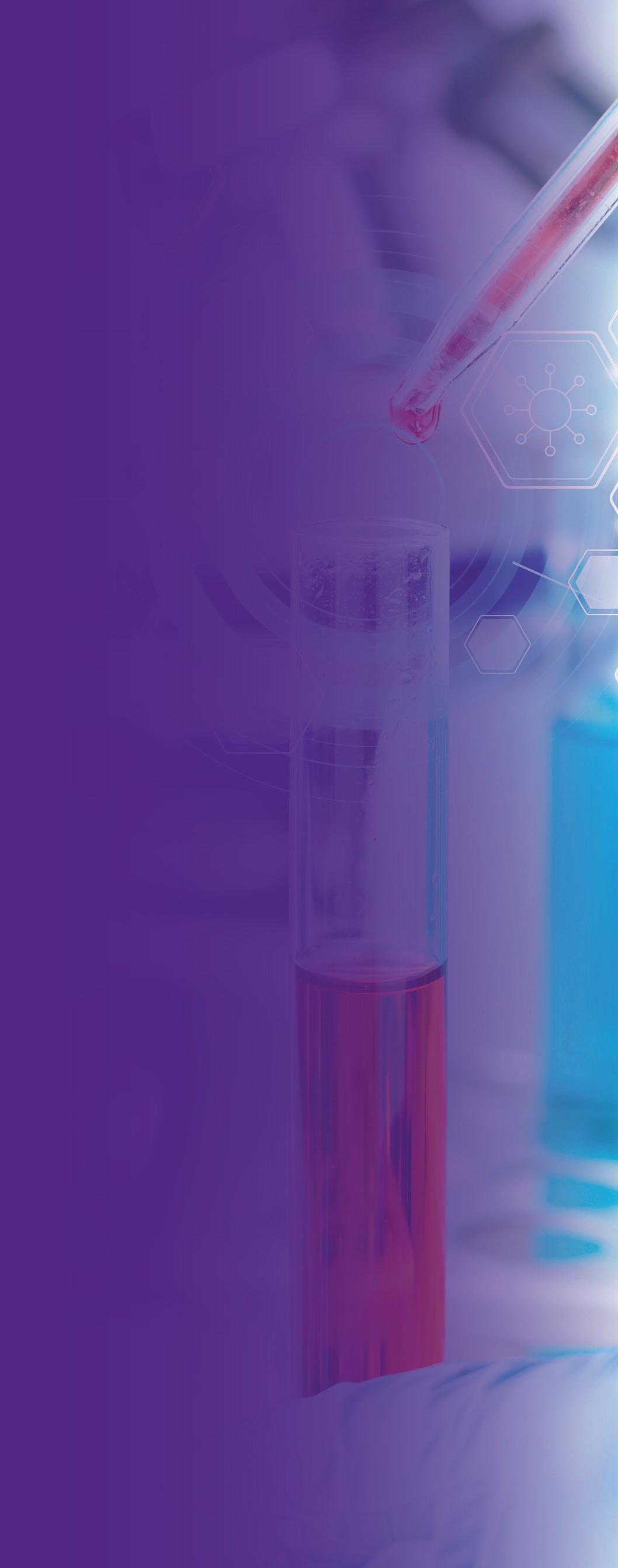
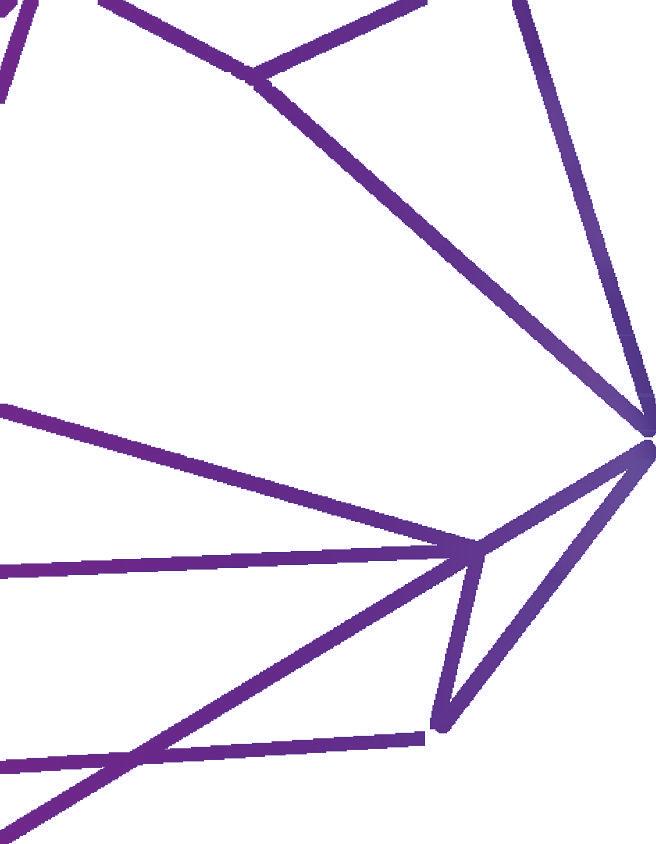



Embark on a transformative journey at the University of the Free State’s Faculty of Health Sciences, where innovation meets compassion. Join our community of future healthcare leaders dedicated to making a significant impact on global health. With world-class facilities and cutting-edge programs, we’re not just preparing students for careers; we’re shaping the healthcare pioneers of tomorrow.




MBChB AP Score of 36
COMPULSORY SUBJECTS: (minimum requirements)
English: 60%
Maths: 60%
Life Sciences: 60%
Physical sciences: 60% (SUBJECT TO SELECTION)
APPLICATIONS CLOSE: 31 MAY 2024
SCHOOL OF CLINICAL MEDICINE, SCHOOL OF PATHOLOGY AND SCHOOL OF BIOMEDICAL SCIENCES
NBT TESTS: Compulsory and must be written before 7th of July 2024

SCHOOL OF HEALTH & REHABILITATION SCIENCES
• BSc Physiotherapy AP Score of 33
English: 60%
Maths: 50%, LS: 60%, PS: 50%
B.Occupational Therapy AP Score of 33
English: 60%
Maths: 50%, LS: 60%,(and/or) PS: 50%
B.Optometry AP Score of 33
English: 60%
Maths: 50%, LS: 60%,(and/or) PS: 60% (SUBJECT TO SELECTION)
APPLICATIONS CLOSE: 31 MAY 2024
NBT TESTS: Compulsory and must be written before 7th of July 2024

SCHOOL OF HEALTH & REHABILITATION SCIENCES
BSc Dietetics AP Score of 33
English: 60%
Maths: 50%, LS: 60%, (and/or) PS: 50%
B.Biokinetics AP Score of 33
English: 60%
Maths: 50%, LS: 50%, (and/or) PS: 50%
B.Sport Coaching AP Score of 30
English: 50% (SUBJECT TO SELECTION)
APPLICATIONS CLOSE: 31 JULY 2024
NBT TESTS: Compulsory and must be written before 7th of July 2024.
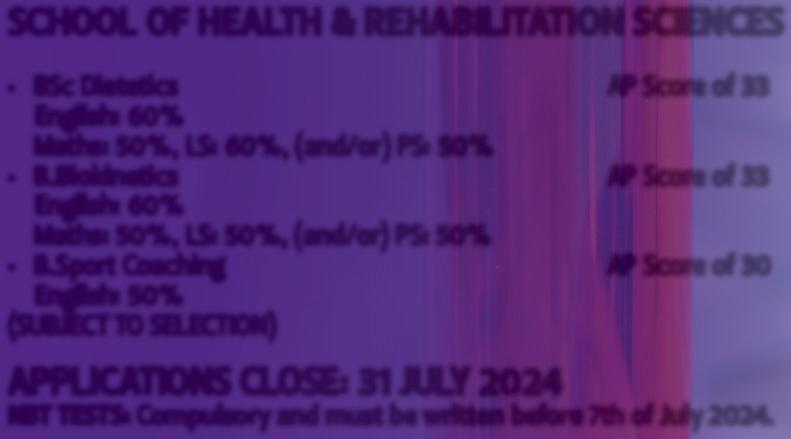
SCHOOL OF NURSING
B Nursing AP Score of 30
COMPULSORY SUBJECTS: (minimum requirements)
Maths: 40% or Mathematical Literacy: 70%
Life Sciences: 60%
OR Physical sciences: 50%
English: 50% (SUBJECT TO SELECTION)
APPLICATIONS CLOSE: 31 JULY 2024
NBT TESTS: Compulsory and must be written before the end of July 2024




The Bloemfontein Campus of the University of the Free State (UFS) in Bloemfontein became alive with the Dream Walk on 10 February. This is a heartfelt tradition welcoming new faces to the UFS family. This memorable event, part of the Gateway FTEN Kovsie Week, marked a pivotal beginning for first-year students, symbolising their first steps towards achieving their academic dreams. Clad in their vibrant 2024 FTEN T-shirts, students embarked on a journey filled with hope and aspirations, under the guidance and encouragement of Prof. Francis Petersen, ViceChancellor and Principal of the UFS. This day was not just about the physical steps taken, but about the dreams envisioned and the community spirit that embraced every newcomer.

The new students on the Qwaqwa Campus of the UFS was welcomed during the Dream Walk event there on 17 February. This day stood out as a vivid testament to the hopes and aspirations of first-year students, as they took their inaugural steps along the path that would lead them to their graduation day. With Prof.
Naidoo and Prof. Prince Ngobeni at the helm, the Qwaqwa Campus was imbued with a sense of purpose and unity, fostering an environment where every student felt valued and inspired to embark on their academic and personal journey with confidence.

students

The First-Year Athletics event saw the Bloemfontein and South Campuses come alive with fun and activity for this annual meeting. Amidst cheers and spirited competition, dreams were not just chased, but caught in the flight of every leap and sprint. It was more than a day of athletic prowess – it was the beginning of countless future successes.


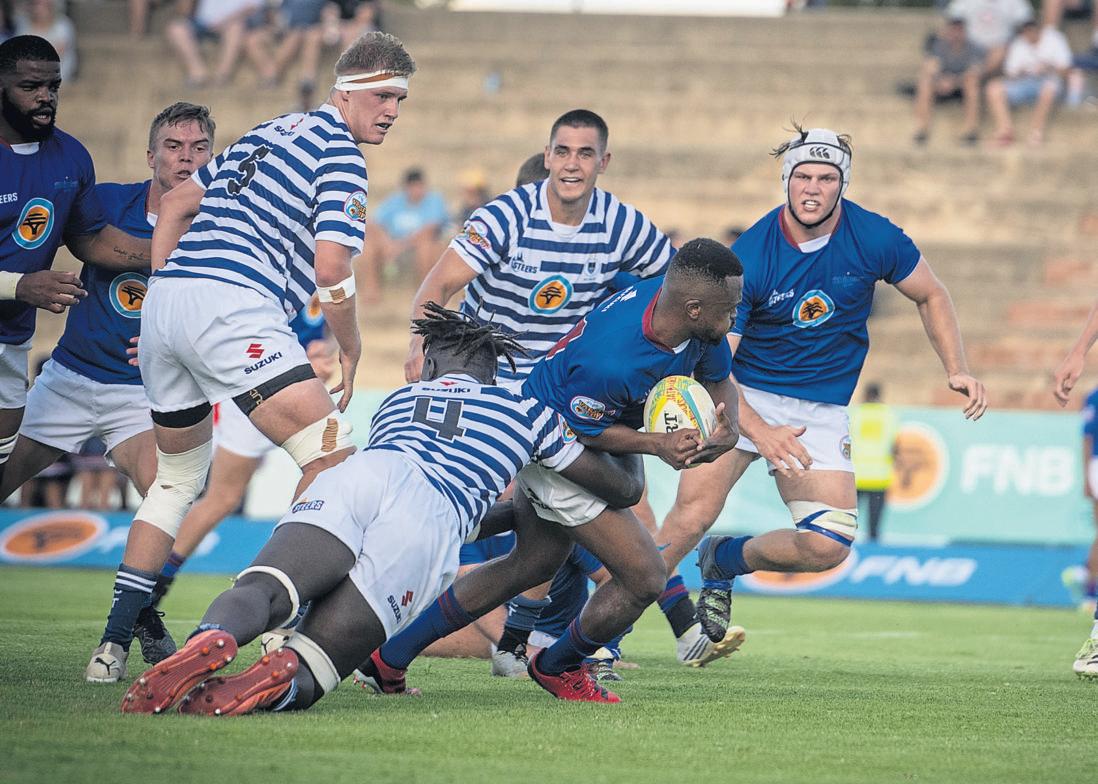
The UFS Shimla Rugby team in action against UCT Ikeys during the 2024 Varsity Cup, which is


At the first Varsity Cup match of the season the University of Cape
Ikeys were too strong for the
up for this loss with five wins. They played
but the
on Monday, 15 April in the semi-final.

Is it humanly possible?
What do Paperless Post co-founder Alexa Hirschfeld, former YouTube
CEO Susan Wojcicki, former Starbucks CEO Howard Schultz, Apple’s Steve Jobs, and Oprah Winfrey have in common? Besides success, of course.
Well, they were all students of the humanities.
All but one (you can guess who) graduated with degrees ranging from communication sciences to literature and history.
Throughout history, people have studied humanities to understand themselves and others better.
And it is back with a bang!
In an era of artificial intelligence (AI), a need for deep knowledge about human intelligence is gaining traction in all fields.
Physicians are signing up for communication workshops to remain relevant in the face of automated medicine, lawyers are honing their human skills to stay ahead of AI, and even engineers and accountants are becoming more interested in understanding the science of being human to perfect their approach to living and business.
Some institutions report that the interest in humanities has more than doubled since the Covid-19 pandemic.
Of one thing you can be sure (for now, at least) – AI can seemingly do just about anything other than be human.
Social Sciences, Humanities and Arts for People and the Economy will help to SHAPE the future.
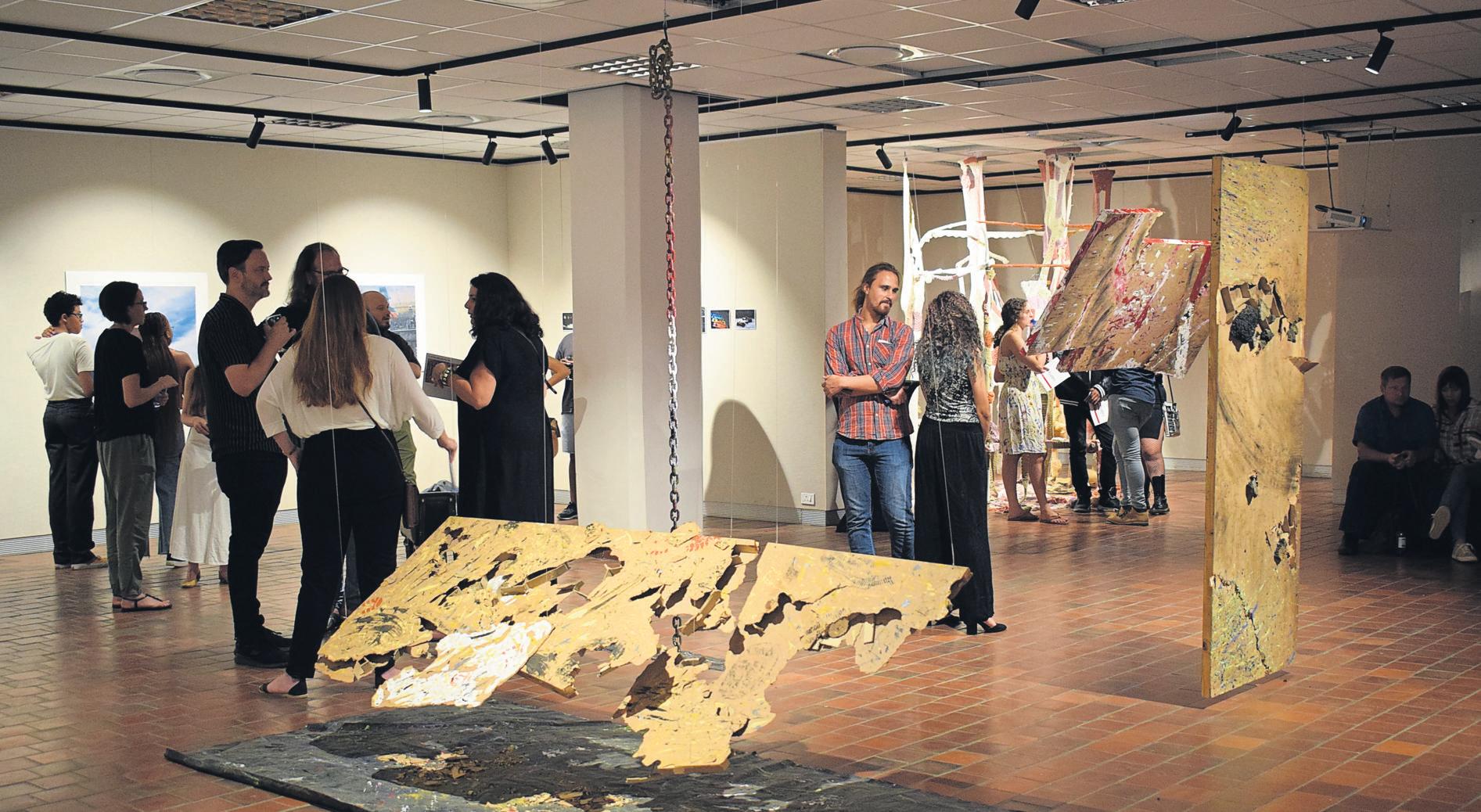
Are you up for it?
Humanities education at the University of the Free State (UFS) is not just an academic journey; it is a voyage into the depths of human thought, culture, and societal dynamics.
It equips you with the tools to critically analyse the world around you, fostering an appreciation for literature, cultures, and the nuanced use of power.
Prof Mogomme Masoga, dean of the Faculty of the Humanities, said: “Today’s ever-changing career world requires several skills that this
Faculty can equip you with, including language proficiency, communication skills, creativity, interpersonal skills, problem-solving skills, computer literacy, and critical thinking. As a Humanities scholar, you will be able to provide possible solutions to the global challenges society faces, be an action leader in society, embrace change, transformation and innovation, and actively participate in research and community activities.”
Some of the programmes on offer are specialised by design, whereas others can be tailored to your vision
for your future. For example, the subject sociology can be combined with B.Soc.Sci. or BA degrees.
Students who choose sociology undertake a fascinating intellectual journey exploring the complexities of human behaviour and societal structures.
If you have a deep interest in how groups of people create meaning and how a discipline can reveal future human potentialities (despite its chequered past or maybe because of it?), and you are genuinely interested in understanding how you participate in the creation of systems
The Humanities graduates are wellequipped to tackle global challenges
of meaning, anthropology is for you. You walk into anthropology as someone with a particular story; you walk out of anthropology as a human being in conversation with other human beings.
Social work is a good option for you if you prefer to make a more hands-on impact.
The UFS’ four-year social work degree will prepare you to serve vulnerable populations through casework, group work, and community work.
Fine Arts is more than just an academic subject or field of study. It is simultaneously a life orientation and a pathway to a professional career.
Visual Arts studies embrace the wholistic development of a person, particularly with regard to innovative abilities, critical artistic judgement, creative skills and problem solving, and the power of imagenation.
Other study fields include music, geography, psychology, community development, history, criminology, political sciences, business management, industrial psychology, and more.
The UFS is at the forefront of a major shift, and you can be a part of the front-runners.

#Future-Focused


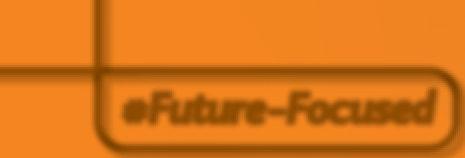

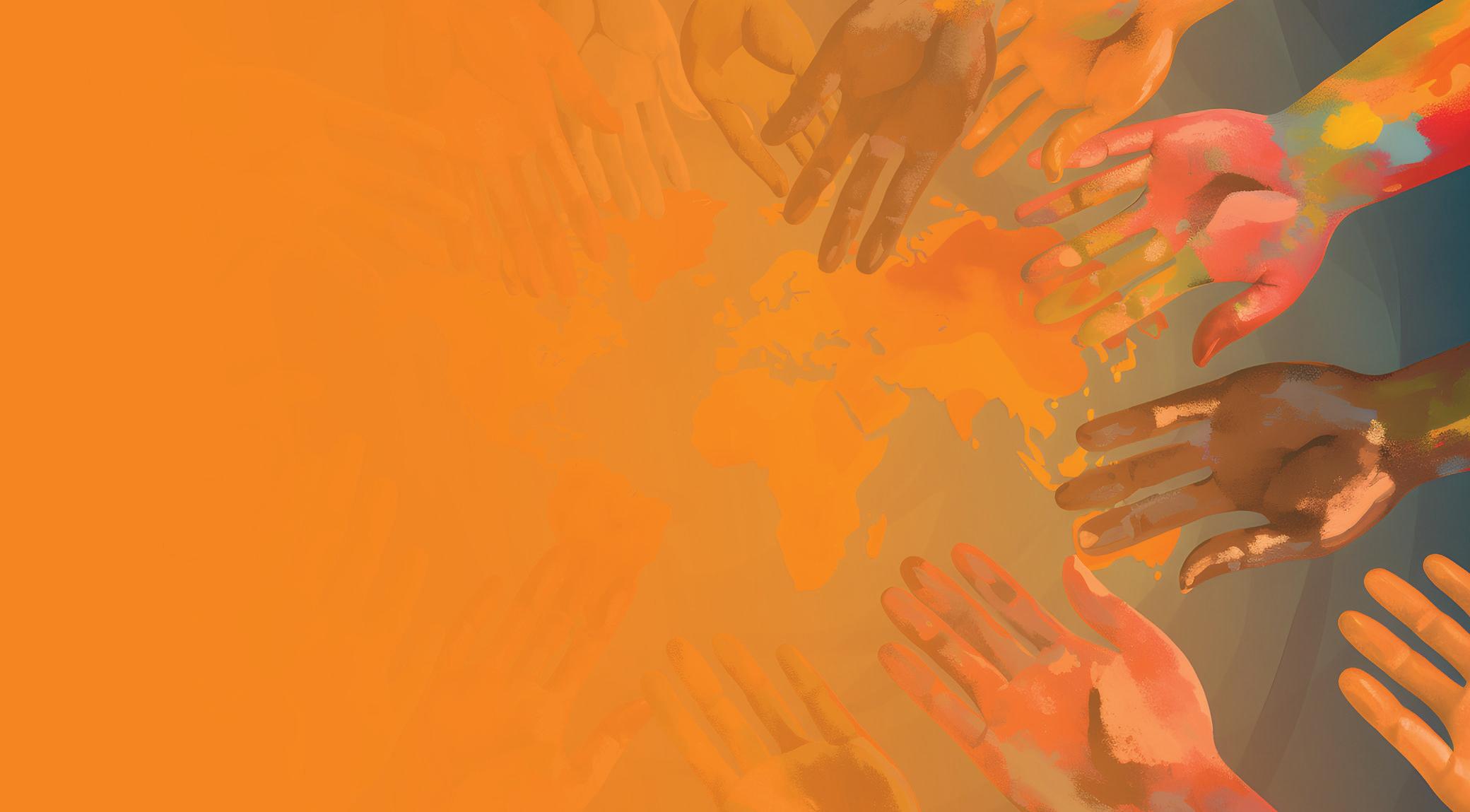

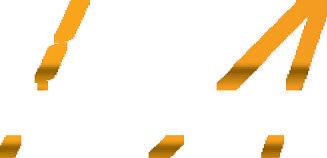


At the University of the Free State’s Faculty of the Humanities, education transcends traditional learning, offering a deep dive into human thought, societal dynamics, and culture This comprehensive approach equips students with critical analytical skills, fostering an appreciation for diverse cultures and literature while honing communication, creativity, and digital literacy.
Highlighted Qualifications:


BA (Fine Arts) (Subject to selection)
AP Score of 30
Level 4 (50%) English
• The closing date for application and the portfolio of creative work and selection form is 30 September 2024.
BA (Drama and Theatre Arts) (Subject to selection)
AP Score of 30
• Level 4 (50%) English
• Drama experience at school level is recommended and a compulsory audition and interview will be conducted for selection. Closing date for application is 30 September 2024.
BA (Music) (Subject to selection)
• AP Score of 30 Level 4 (50%) English

Bachelor of Social Work (Subject to selection)
AP Score of 30
Level 5 (60%) English

Requirements: Music Theory Unisa Grade 5 or equivalent: Music Performance Unisa Grade 7 or equivalent; Compulsory audition and theory proficiency test before 30 September 2024.

• Closing date for applications for selection is 31 July 2024
Bachelor of Social Sciences (BSocSci)
AP Score of 30
Level 4 (50%) English
• The Bachelor of Social Sciences degree (BSocSci) makes provision for majoring in any two of the following subject fields: Psychology, Sociology, Anthropology, Criminology, Political Science; and Industrial Psychology Applications close 30 September 2024

Inspiring excellence, transforming lives through quality, impact, and care.
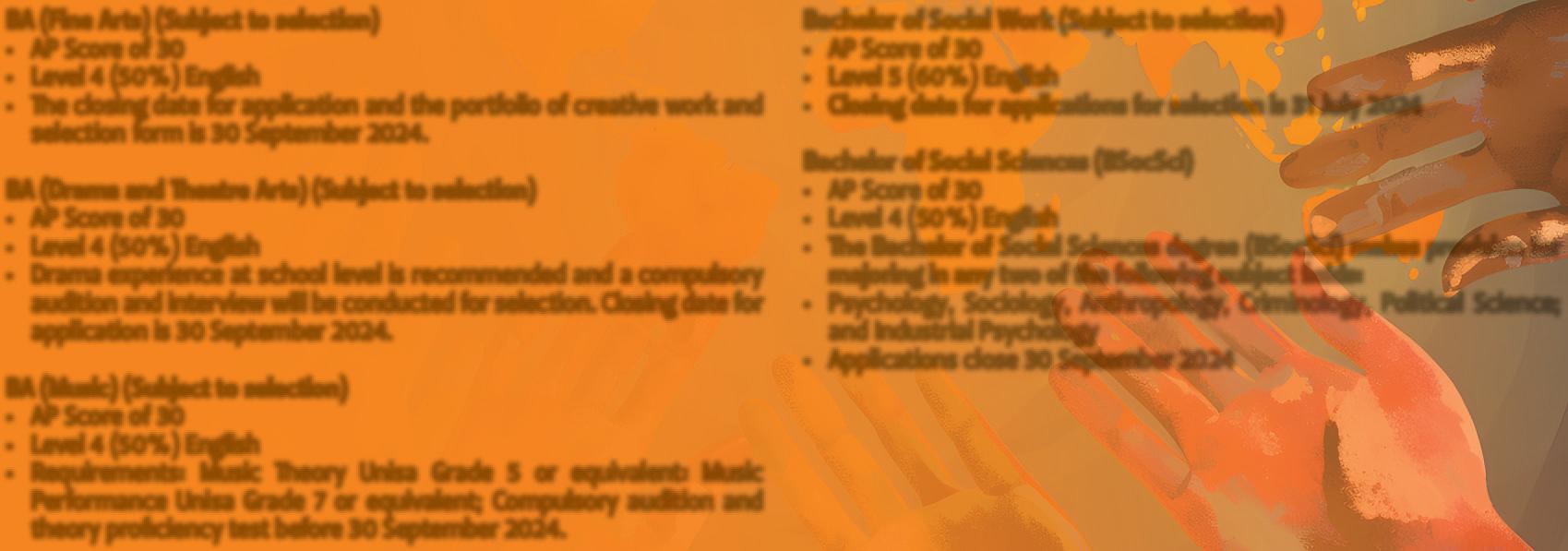
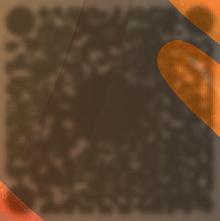














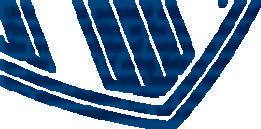

Unleash your potential with the Bachelor of Commerce degree, specialising in Business and Financial Analytics, at the University of the Free State (UFS). This innovative programme merges the core principles of commerce with cutting-edge data analysis and financial insights You’ll master the art of using data to drive informed decisions across business and finance sectors. Designed for aspirants keen on harnessing the power of data in the modern business landscape, this specialisation primes you for a successful career in finance, investment analysis, and business management. Join us and transform your passion for data into a dynamic career.
In an ambitious move to counter South Africa’s escalating unemployment and poverty rate, the University of the Free State (UFS) has unveiled its latest endeavour, the UFS StartUp Incubator: a pioneering incubation centre set to foster a vibrant ecosystem of innovation and entrepreneurship.
Conceived by academics of the Faculty of Economic and Management Sciences, this visionary initiative promises to propel the UFS to the forefront of entrepreneurial education and development.



South Africa’s entrepreneurial spirit, although resilient, faces significant hurdles with soaring unemployment rates, particularly among the youth.
The UFS StartUp Incubator aims to turn the tide by equipping aspiring entrepreneurs with the skills, networks, and tools essential for success in the competitive global market.
The incubation centre will not only be a physical space, but a beacon of hope and innovation.
The challenges are manifold; from the scarcity of skilled professionals to the limited access to essential
resources such as technology and funding. However, the UFS StartUp Incubator is ready to address these through a comprehensive approach that includes skills development, business idea validation, and facilitating access to critical funding and partnerships.
Central to this ambitious project is the active management and expertise contributed by the Faculty of Economic and Management Sciences, in collaboration with the Directorate: Research Development.
This synergy underscores the incubator’s commitment to research commercialisation, student entrepreneurship, and community engagement, setting a new standard for incubation centres nationwide.
Drawing inspiration from successful entrepreneurship practices at other universities, the UFS StartUp Incubator is determined to carve out a unique identity by prioritising incubation, support, training, and mentorship.
Prof. Philippe Burger, dean of the Faculty of Economic and Management Sciences, expressed his optimism about the initiative’s potential impact.
“The UFS StartUp Incubator is more than an incubation centre; it is a catalyst for change, designed to nurture the entrepreneurial spirit among our students and the wider community.
“By fostering a culture of innovation, we aim to contribute meaningfully to economic development and job creation in the region.” While the official name of the incubator is yet to be finalised, it is temporarily dubbed “The UFS StartUp, ScaleUp and SpinOff Hub”. This provisional title captures the essence of the incubator’s mission: to serve as a dynamic hub for entrepreneurial growth and innovation.
As the university embarks on this exciting journey with its UFS StartUp Incubator, it invites collaboration from all sectors of society to join hands in shaping a future where innovation and entrepreneurship are the cornerstones of economic prosperity and social progress.
The initiative also recognises the untapped potential within the Free State, particularly in sectors like agriculture and mining, where innovation can spur significant economic growth and improve living standards within the province.






















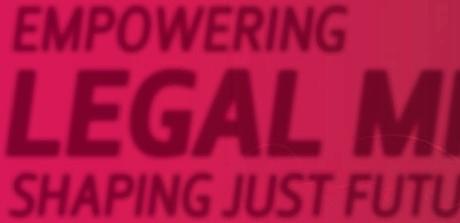

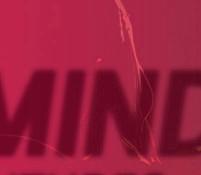





Nestled in Bloemfontein, South Africa’s judicial heartland, the Law Clinic of the University of the Free State (UFS) steps up as a vital provider of free legal services, unique to the Free State and Northern Cape regions.



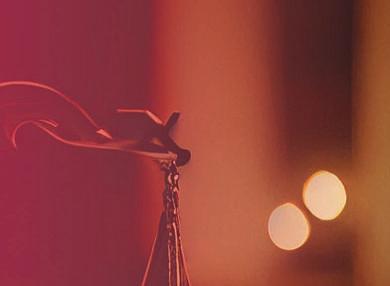
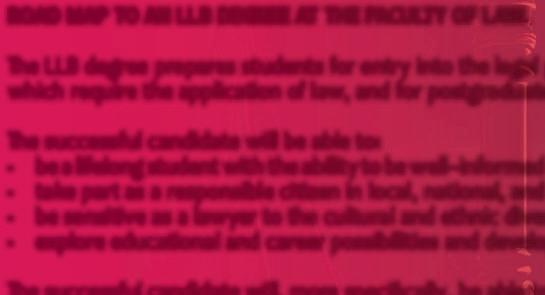
Established under the auspices of the Legal Practice Act of 2014, the clinic uses the expertise of seasoned attorneys to offer aid and mentor final-year law students, merging legal theory with practical experience.
The successful candidate will be able to: bealifelongstudentwiththeabilitytobewell-informedofthemostrecentlegaldevelopments; take part as a responsible citizen in local, national, and international communities; be sensitive as a lawyer to the cultural and ethnic diversity in the community; and explore educational and career possibilities and develop entrepreneurial skills.
The successful candidate will more specifically, be able to: identify and solve legal problems through critical and creative thinking; approach and study personal and professional activities in a responsible, ethical, and effective manner; do effective legal research by gathering, analysing, and critically evaluating information; communicate effectively, both verbally and in writing; cooperate effectively with others in society; use technology effectively and responsibly to the advantage of the community as a whole; and see the law as a component in a system of interdependent systems within the community where problem-solving cannot occur in isolation.
ADMISSION REQUIREMENTS


To be admitted to the four-year LLB, a candidate should be in possession of an endorsed Senior Certificate (until 2007) with an M-score of at least 34 points; or the candidate should be in possession of a National Senior Certificate (from 2008) or National Certificate (Vocational) with an AP score of at least 33 points with a minimum performance mark of 70% (performance level 6) in English Home Language or English First Additional Language, and (2) a minimum performance mark of 70% (performance level 6) in mathematical literacy or a minimum performance mark of 50% (performance level 4) in mathematics

Applications close: 30 September 2024

excellence, transforming lives through quality, impact, and care.
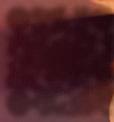
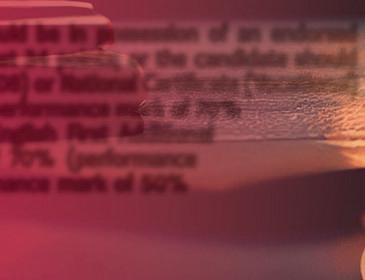

With its roots tracing back to the late 1980s, the clinic has built a formidable reputation, underscored by principles of trust, honour, and integrity.
In the recent half-decade, it has championed the legal battles of over 1 500 clients, attesting to its unwavering commitment and community trust. The clinic’s collaborative spirit is supported by its partnerships with six Community Advice Offices and its successful procurement of funding from prestigious bodies such as Legal Aid SA, the Legal Practice Council and the AULAI Trust, further solidifying its status within the legal fraternity.
Beyond its legal services, the UFS Law Clinic stands as a pillar of engaged scholarship at the university, with a mission that extends to transforming lives and making a profound societal impact.
The UFS Faculty of Law is renowned for its comprehensive legal education, fostering a commitment to justice and diversity through its three distinct departments namely Mercantile Law, Private Law, and Public Law.
Additionally, the faculty is home to the School of Financial Planning Law, the UFS Law Clinic and the Free State Centre for Human Rights. The UFS Africa Reparation Hub is a distinguished centre within the faculty, located at the Public Law department. It leads important discussions on Africa’s reparations and serves as a hub for research, teaching, and advocacy in Pan-African reparations.
both nationally and internationally.
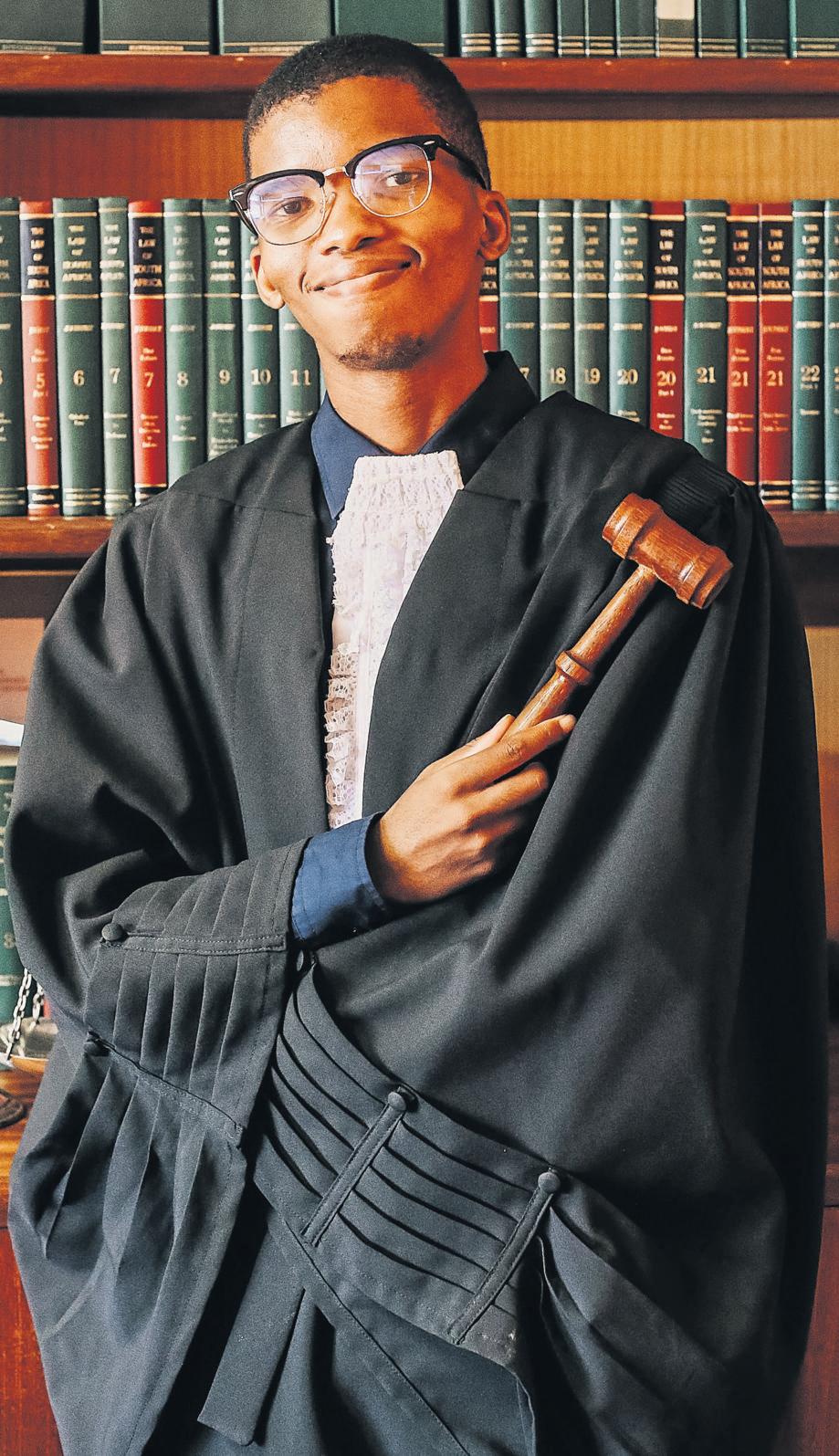
Just delivered to the western part of the Bloemfontein campus of the University of the Free State (UFS) are the components for an algae plant. A structure that Prof Paul Oberholster, dean of the Faculty of Natural and Agricultural Sciences, and Dr Glen Taylor, senior director of the Directorate Research Development, want to commercialise.
They believe the plant, once assembled and operational by the end of 2024, will have the potential for research that will ultimately position the UFS as a leader on the African continent.
Instead of using algae raceways – the oldest system for the mass cultivation of algae – the plan involves installing 20 photobioreactors (PBRs) to cultivate the algae, operating off the grid. Additionally, a centrifuge will be implemented to separate the algae from the water.
Oberholster has been conducting research on water and algae for more than 20 years. He not only studied this at the Council for Scientific and Industrial Research (CSIR), but also worked on creating certain algae consortiums worth millions of rands.
When Taylor showed him a photograph of the algae facility in Upington, he realised the potential of this plant. The duo then began negotiating with the Technology Innovation Agency (TIA) to donate the plant to the UFS. Plans are underway to relocate it to the western part of the UFS Bloemfontein campus.
In recent years, Oberholster has been involved in several algae plants in South Africa and Africa, applying the phytoremediation process – a biological clean-up technology – as a low-cost green treatment alternative. He used a consortium of algae (including Chlorella strains) in municipal wastewater treatment pond systems to improve the treatment capacity of domestic wastewater.
According to him, more than 50 countries in Africa (60%) use wastewater treatment pond systems, where algae technology can be employed to treat domestic wastewater, allowing its reuse and helping to alleviate water stress in Africa. This alternative is also much cheaper than traditional wastewater plants, which can consume up to R230 million of a municipality’s budget.
With a price tag of R300 000, it is a much more attractive option. The UFS, in collaboration with the CSIR, is at the forefront of this research. Taylor indicates that the university is exploring the possibility of a memorandum of understanding with the CSIR for further research in this field.
Oberholster’s plans for the algae plant on the west campus, however, do not focus on water purification, but rather on the
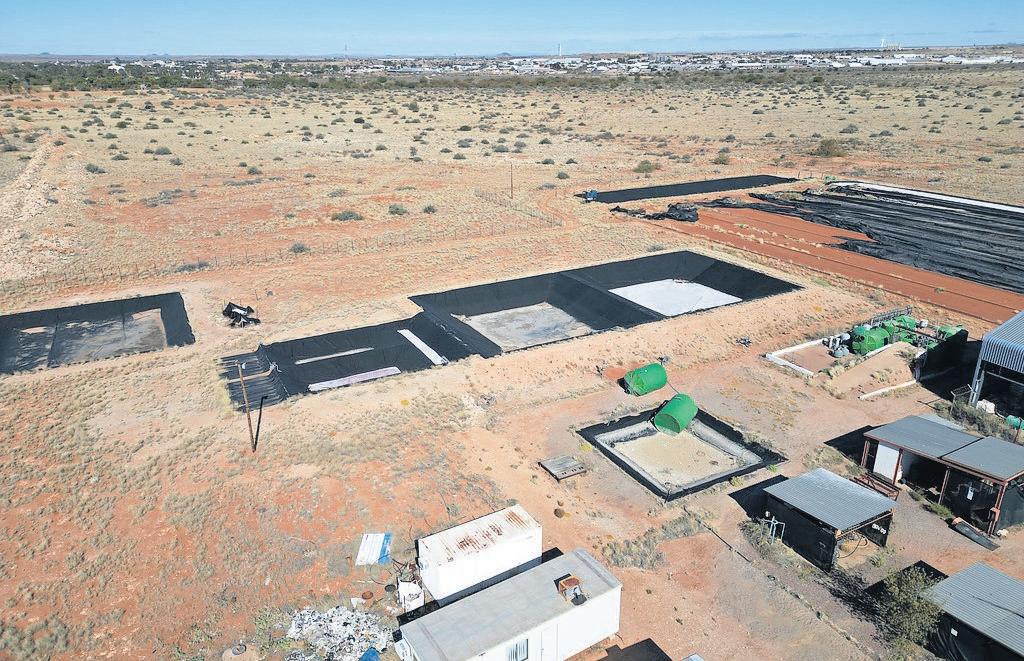
Prof Paul Oberholster says the algae project not only falls into the four thematical areas in the faculty, which include food, water, climate change, and infrastructure and innovation, but it is directly in line with the university’s Vision 130 of extending the institution’s influence and impact as a research-orientated university to a global level.
Our technology using outdoor photobioreactors is the first in the world.
- Prof Paul Oberholster
nutraceutical products of the algae, with a strong emphasis on carotenoids (a group of pigments acting as antioxidants, protecting cells from damage caused by free radicals; with health benefits for humans, such as supporting vision, immune function, and overall health).
“The nutraceuticals produced by algae include omega-3 fatty acids, which improve both brain and heart health; carotenoids; sulphated polysaccharides, which have anticoagulant properties (preventing blood from clotting), anti-tumour and antiviral activities; fucoxanthin, which has antioxidant and anti-obesity effects; and sterols, which show anti-diabetic properties.”
Other high-value products derived from algae include cosmetics such as anticellulite and anti-aging skin treatments, antibacterial creams, sun protection, hair care, toothpaste, and shaving creams.
Another great application of algae is biofuels, which can include biodiesel, bio-oil (an alternative to liquid biofuel with similarities to petroleum oil), ethanol, biogas, and biooil and syngas. A mixture of the latter can be combusted to produce heat or electricity. Non-fuel products produced from algae can be used for animal feed, human consumption, and fertiliser. Besides the higher value nutraceuticals, pharmaceuticals, and cosmetic products obtained from algae, Oberholster plans on using the non-fuel byproduct – a lower valued product of the microalgae – mostly for animal feed and fertiliser.
Algae products on the market represents a multimillion-dollar industry. For instance, the global algae biomass market was worth US $5 to 7 billion approximately 15 years ago. Products such as nutraceuticals, pigments, fertilisers, animal feed, food industries, cosmetics, and chemicals have readily

accessible markets with greater margins.
Taylor believes that creating spin-off companies to tap into some of these industries could contribute to the third-stream income of the UFS.
In five years, Taylor would like to see the development of several products with market value, the exploration of additional applications for technology, the training of postgraduate students, the enhancement of the UFS’ research, and becoming a leader on the continent, because there is no such facility elsewhere in Africa.
“Our technology using outdoor photobioreactors is the first in the world; this has never been done before,” says Oberholster.
“It is millions of rands worth of science being invested in this first-world, cutting-edge technology,” adds Taylor.
“How we transform research into value – that is important.”
Oberholster continues: “We need to do work at the UFS that is special, that is unique, the best in a certain field. We have the expertise.
“It is not only about algae. We have departments that can buy into this concept and start doing research. Besides Environmental Management, Chemistry, Biochemistry, Pharmacology, Indigenous Knowledge, Engineering, Plant Sciences, FARMOVS, and Instrumentation and Microscopy can get involved in this multi-disciplinary initiative.”
“The algae initiative aligns not only with the faculty’s thematical areas of food, water, climate change, and infrastructure and innovation, but also with the university’s Vision 130, aiming to extend the institution’s influence and impact as a researchorientated university to a global level.
“Furthermore, the initiative establishes a value chain for algae that addresses several United Nations (UN) sustainable development goals (SDGs), including poverty alleviation, zero hunger, health improvement, clean water and sanitation, climate action, and economic growth.”
“The journey ahead promises incredible achievements,” says Oberholster.
“With this initiative, the sky is the limit.”










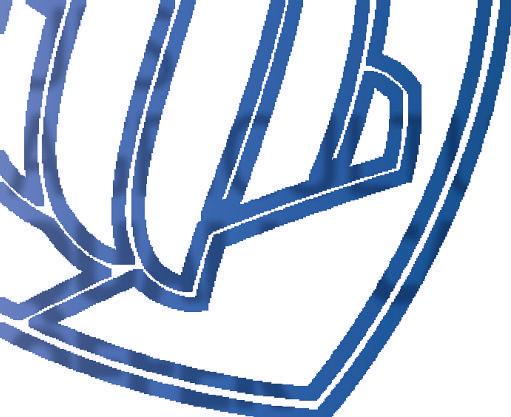
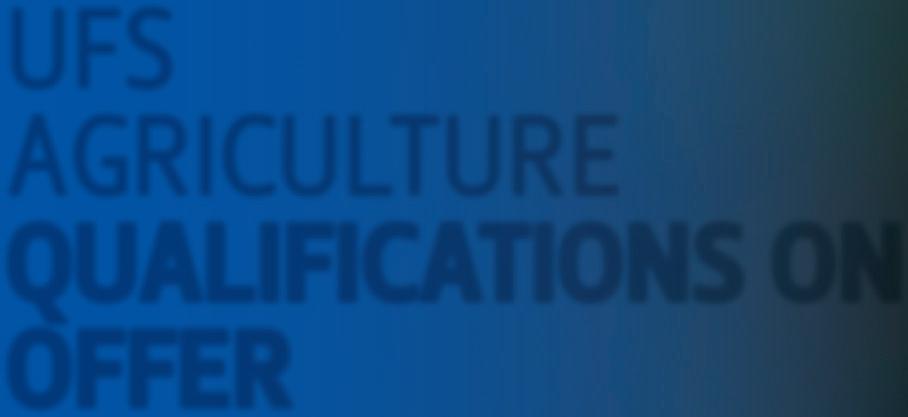


BSC (AGRICULTURE)
Scientific
Researchers and scientists
Fundamental science underpinning
Selection of the best candidates to strengthen future research opportunities
B AGRIC
Focused on the profession
Competent and employable graduates
• Sustainable production, precision, technology, natural resources, climate, etc
Industry involvement: internships and practical training
Practical training on the Paradys Experimental Farm
BACHELOR OF SUSTAINABLE FOOD SYSTEMS (ACCREDITED IN 2022, IMPLEMENTED IN 2024)
Focused on agro-processing
Scientific aspects of food processing, but industry focused
Plant-based, meat, dairy
• New product development – project in the final year

Understand and manage the food value chain – establish a value chain at the Paradys Experimental Farm
ADMISSION REQUIREMENTS

BScAgric (Animal Science, Agrometeorology, Agronomy, Soil Science, Plant Breeding, Plant Pathology)
AP Score of 32
English 50%
Mathematics (compulsory) 60%
• Physical Sciences (compulsory) 60% and Choice between: Life Sciences / Agricultural Sciences 60%
BScAgric Agricultural Economics
AP Score of 32
English 50%
• Mathematics (compulsory) 60%
BAgric Agricultural Economics
• AP Score of 30
English 50%
Mathematics (compulsory) 50%
BAgric Agricultural Management
AP Score of 30
• English 50%
Mathematics 40% OR Mathematical Literacy 80% IF AP is 31 and above.
BAgric (Agricultural Extension, Animal Production Management, Crop Production Management, Mixed Farming Management, Irrigation Management)
• AP Score of 30
English 50%
Mathematics 40% OR Mathematical Literacy 80% IF AP is 31 and above.
Bachelor of Sustainable Food Systems
AP Score of 30
• English 50%
Mathematics 30% OR Mathematical Literacy 60%


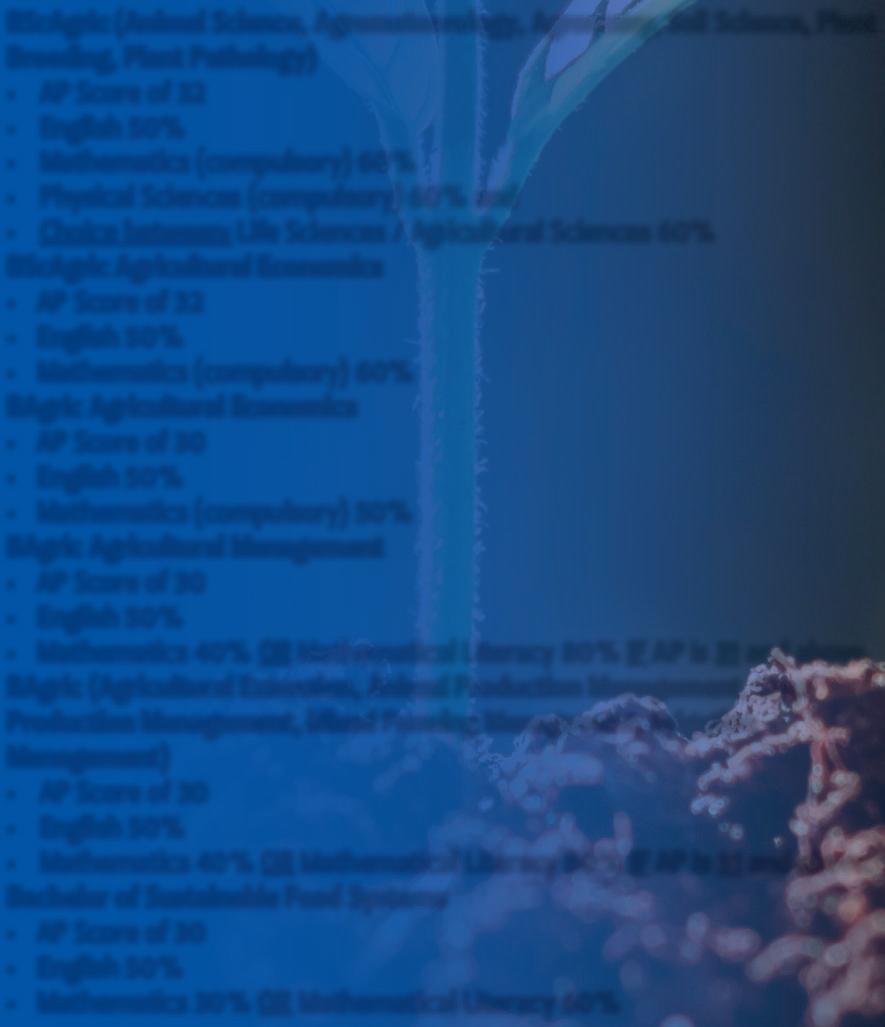

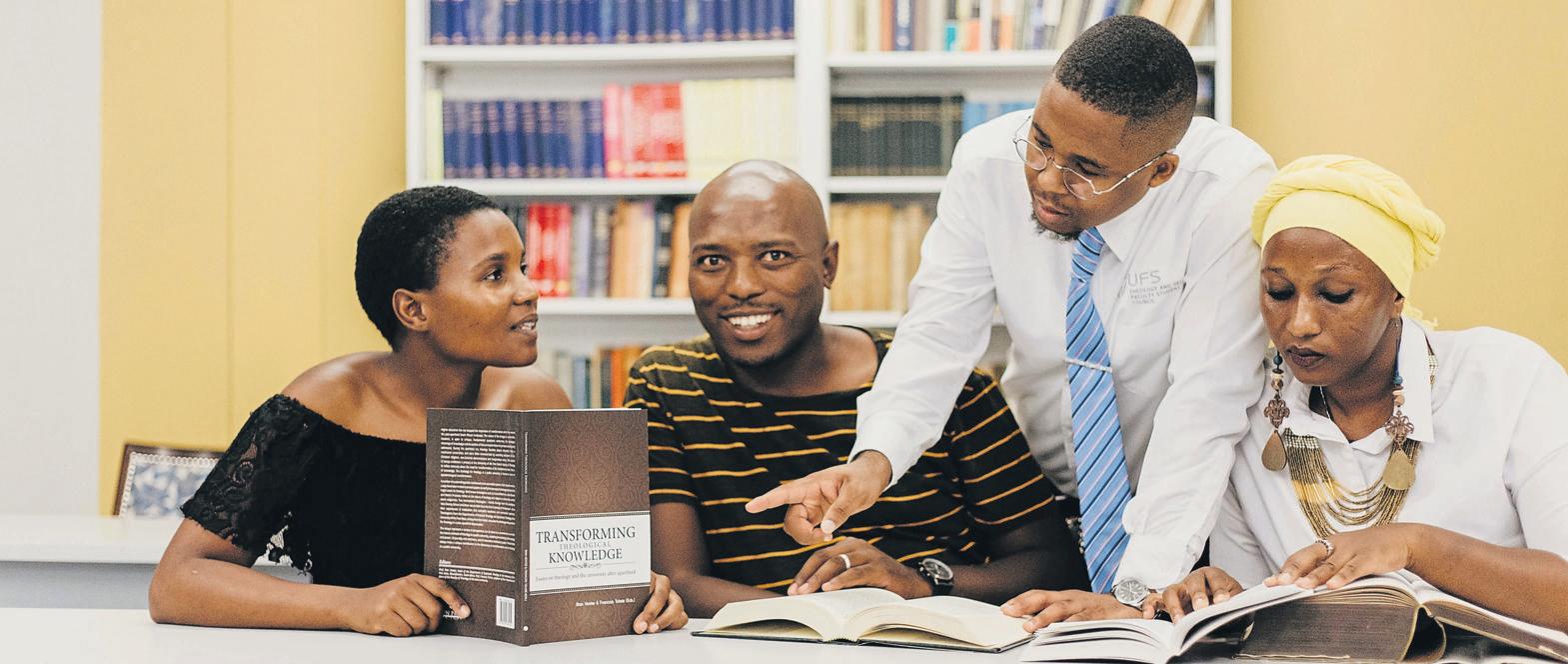
Nestled in the heart of South Africa, the University of the Free State’s Faculty of Theology and Religion stands as a beacon of academic and spiritual enlightenment.
This institution is dedicated to cultivating a scholarly pursuit of theological education, coupled with a practical understanding of the religious impact on society and individual lives.
With programmes ranging from the foundational Certificate in Theology to advanced postgraduate degrees such as Masters and Doctorates, the faculty accommodates a diverse spectrum of students and researchers. The Bachelor of Divinity (BDiv) programme is particularly noted for its thorough and critical theological foundation, preparing students for meaningful careers in ministry and beyond. Those with a deep interest in the ministerial profession can look to the Master of Divinity (MDiv), which integrates a substantial practical part in partnership with churches.
The faculty’s approach is distinguished by its focus on inclusivity across racial, gender, and
cultural lines, ensuring a rich and varied academic experience.
The faculty’s values are deeply rooted in classical theological orientation, intellectual excellence, and innovation, all supported by a foundation of spiritual and ethical integrity.
Community engagement is a key pillar, with the faculty members actively participating in local church life and contributing scholarly work to both local and international academic conversations. Their commitment is not just theoretical; faculty partnerships extend to practical services, such as working with a maximum-security prison, reflecting their dedication to applying theology in varied contexts.
This institution is more than an academic hub; it is a community where learning, faith, and service converge, transforming lives through quality education and care.
The faculty encourages those interested in joining this vibrant community to reach out and explore the wealth of opportunities available for personal and professional growth.
Students and lecturers at the University of the Free State’s Faculty of Education were recently awarded for their exceptional talent and contributions. This year’s prestigious Teaching and Learning Awards ceremony highlighted the dedication to educational innovation and excellence within the faculty, underscoring its commitment to shaping the future of education.
Prof. Jannie Pretorius and Thabiso Motsoeneng received the Khothatsa Project Award, recognising their outstanding contributions to innovative teaching methods and impactful community engagement. Their work exemplifies the faculty’s dedication to harnessing diversity and creativity in education to address real-world challenges.
Dr Annemie Grobler took second place in the Most Valued Professional Award category, celebrating her significant professional contributions to the faculty and the broader educational community.
Dr Henry Nichols, in collaboration with Dr Eleanor Bernard from the Centre for Teaching and Learning (CTL), received the Best Conference Paper Award, highlighting the faculty’s strong emphasis on research and scholarship in education.
Simphiwe Kunene, a student, was the recipient of the Special Recognition Student Award as the 2024 ATD Dream Scholar, marking a historic moment as the first African DREAM scholar. Currently a master’s student in the Faculty of Education, Kunene’s achievement underscores the faculty’s role in fostering student success and leadership on the international stage.
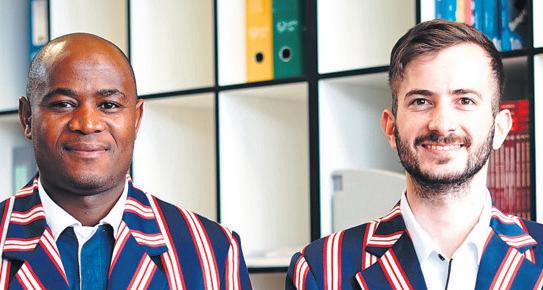
International opportunity
In a development for academic excellence and research, two of the faculty’s members, Philangenkosi Shabangu, a lecturer, and Stefanus Scheepers, a professional officer in the Teaching Practice Directorate and an alumnus of the UFS, have been selected for the WitsEdinburgh Sustainable African Futures (WESAF) Doctoral Programme.
Awarded full scholarships, they will pursue their PhDs at the University of Edinburgh in the United Kingdom.
Call for applications
The Faculty of Education encourages prospective students to apply for its highdemand undergraduate programmes, available at the QwaQwa, Bloemfontein and South Campuses.
With a four-year full-time curriculum, these programmes offer specialisations in critical areas of education, including: Foundation Phase Specialisation in Afrikaans Home Language; Intermediate Phase Specialisations in Mathematics, Natural Sciences, Technology, and Life Skills, Social Sciences with Afrikaans Home Language; and Senior Phase and FET Specialisation in English and Afrikaans Home Language.
The faculty continues to lead by example, celebrating the achievements of its community and steadfastly committing to excellence in education. These recognitions and academic opportunities not only highlight individual accomplishments, but also reinforce the faculty’s role as a cradle of educational innovation and leadership.
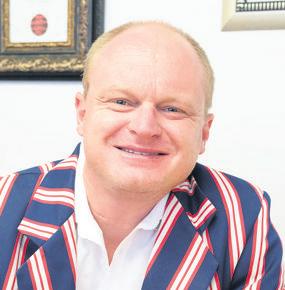



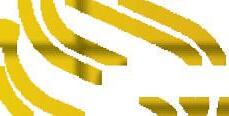




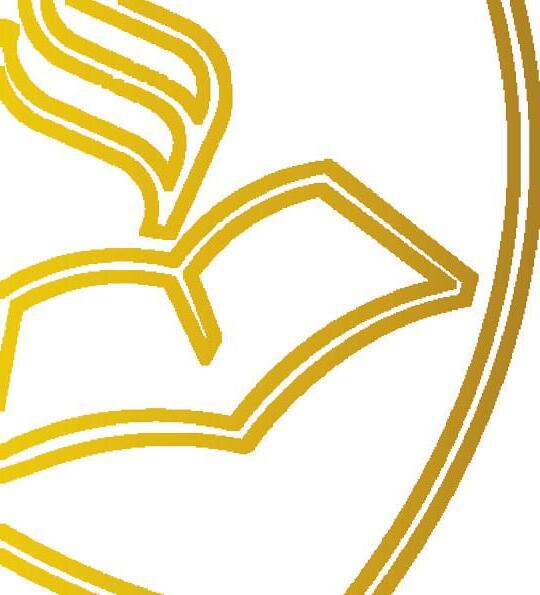

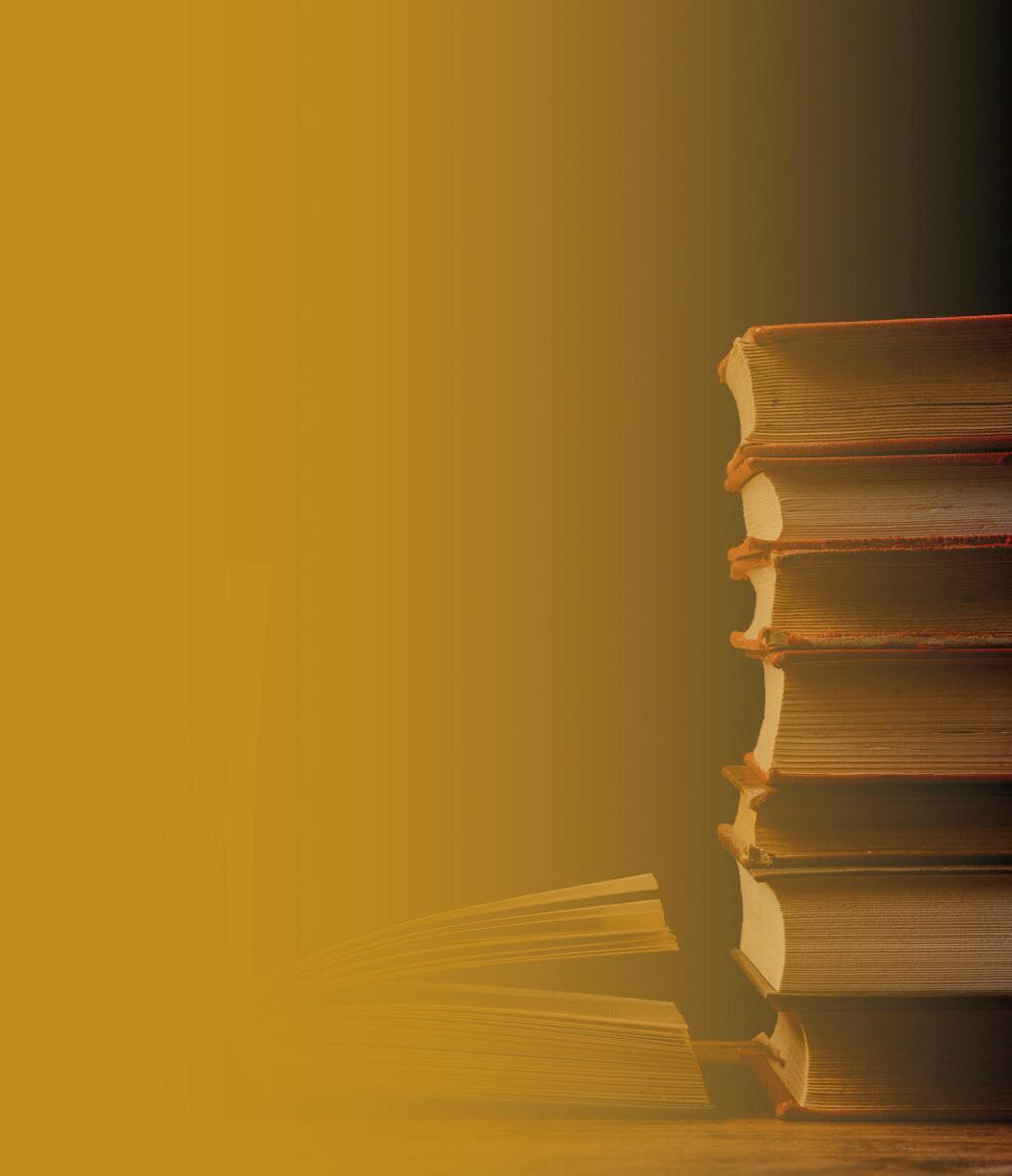




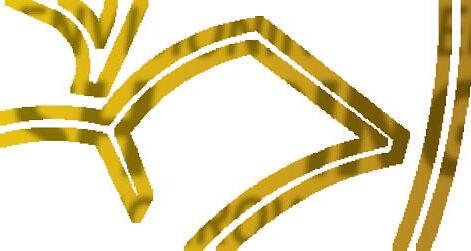



The Faculty of Theology and Religion at the UFS offers a fully-fledged, all-inclusive theological education to train students for a professional career in ministry It offers training in all theological disciplines, starting



